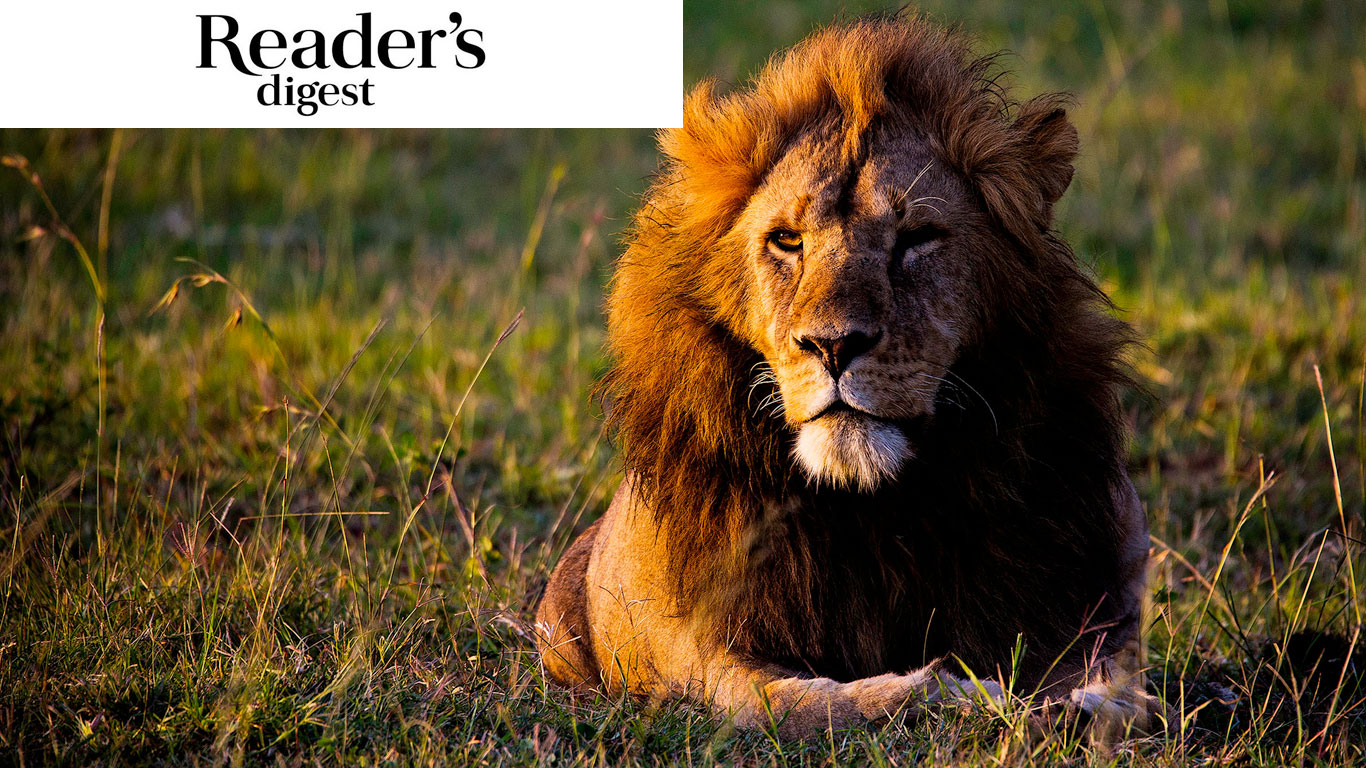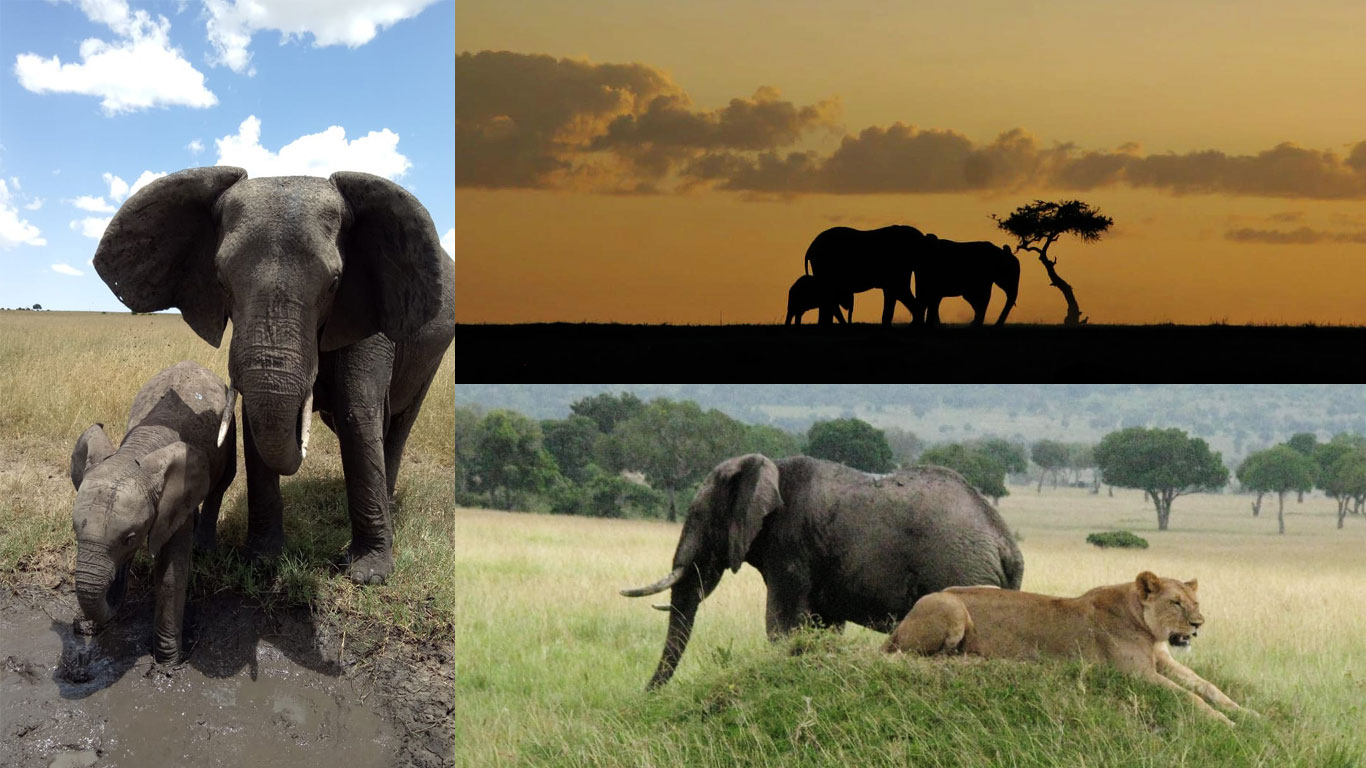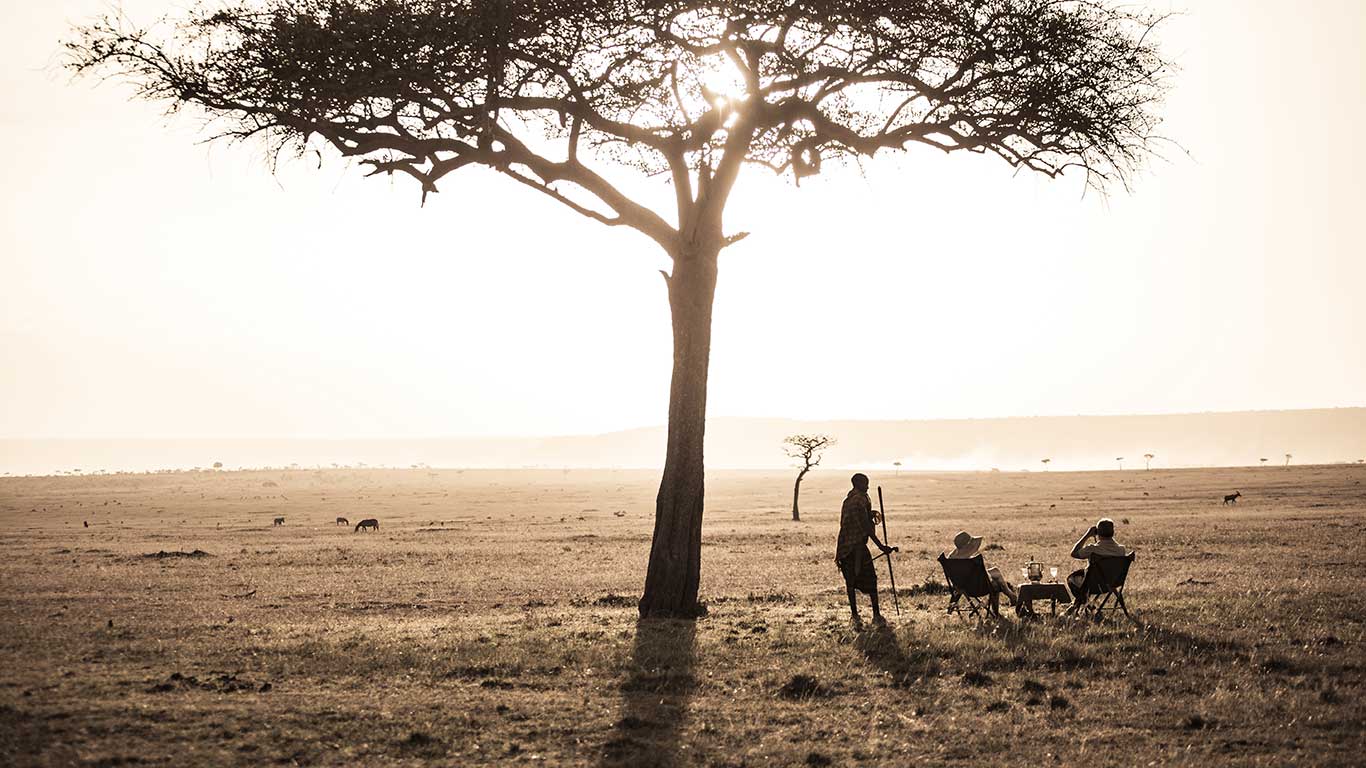
Elewana Newsletter
MARCH 2019
In This Issue:
The Collection
- Elewana Elsa’s Kopje Celebrates 20th Anniversary, Actress Virginia McKenna from Born Free to Join Guests for Festivities
- The Plaster House fundraiser event at Elewana Arusha Coffee Lodge
- Elewana Kilindi Zanzibar & AfroChic Diani strive to keep our beaches clean
- Three Elewana Collection properties closed for the season
- Accessing Information for Elewana Loisaba Lodo Springs
- Elewana Collection marks World Wildlife Day
- A round up of activities on World Forest Day
- World Water Day with Elewana Collection
From Our Partners
Elewana in The Community
- Land & Life Foundation Annual Report is out
- Recycled Sunflower Seed oil used to energise glass furnace at Shanga
Training
Awards & Voting
Travel Updates
- Best reasons to Getaway to the Indian Ocean Mid-Season
- Travellers to Zanzibar be advised that plastic has been banned
- Kenya Airways and Alitalia Sign Codeshare Deal
- Convenient daily flights connecting the Masai Mara to Zanzibar or Diani with Safarilink
Media
Following The Herds
Elewana Elsa’s Kopje Celebrates 20th Anniversary, Actress Virginia McKenna from Born Free to Join Guests for Festivities
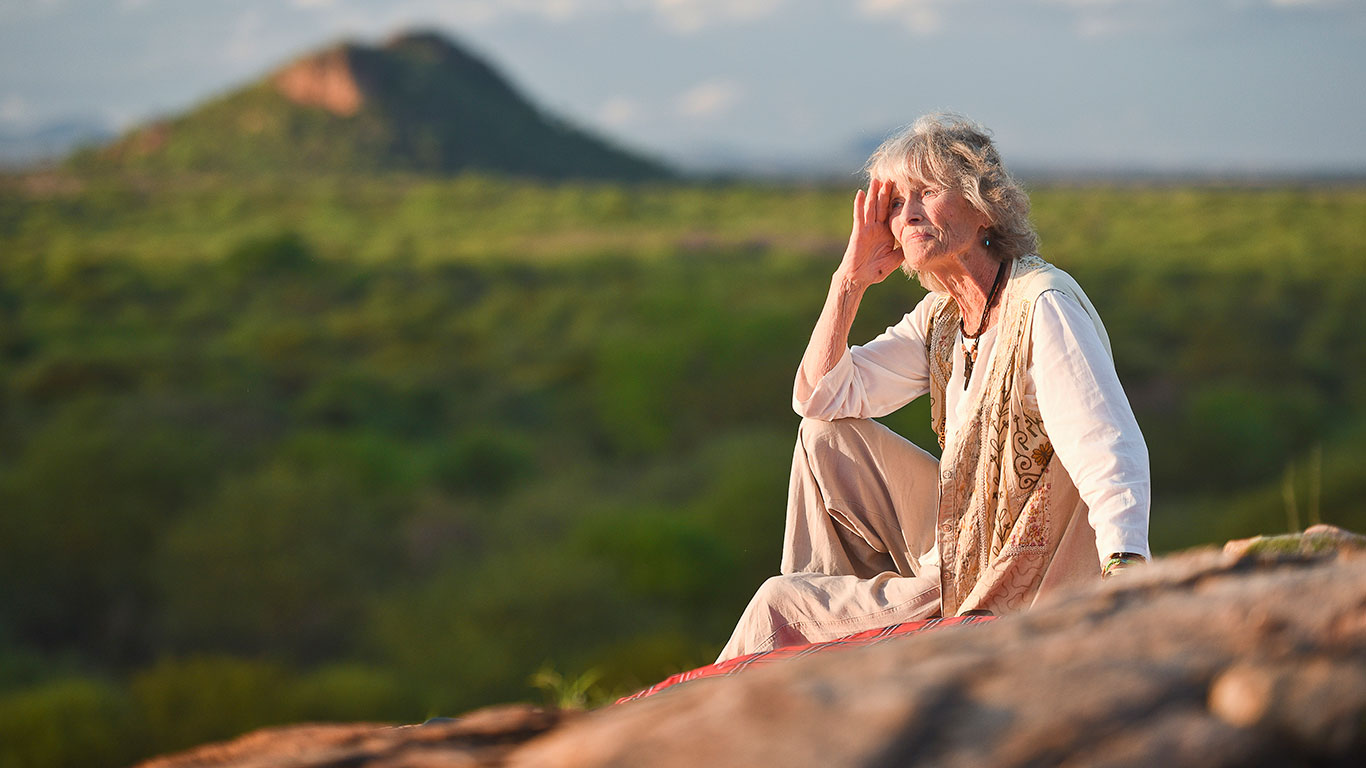
The Elewana Collection is delighted to announce that Virginia McKenna will join guests at Elewana Elsa’s Kopje in Meru National Park to celebrate 20 years since the property opened. Special events will take place from the 3rd to 6th July 2019 including dinner under the stars followed by a screening of Born Free, a bush breakfast near the grave of Elsa, a book signing and tea with Virginia and a gala dinner with leading conservationists.
Named after Elsa, the lioness upon who the film Born Free was based, Elewana Elsa’s Kopje is located on the Mughwango Hill (Kopje) above the site of the original campsite where Joy and George Adamson raised Elsa the lioness. The film, Born Free, is credited with popularising the concept of animal conservation and Virginia continues to work tirelessly on campaigns through the Born Free charity that she founded, including ongoing conservation projects in Meru National Park.
Elewana Elsa’s Kopje is the only permanent lodge in the area where guests can easily enjoy the 215,000 acre Meru National Park and rhino sanctuary, well known for large elephant herds, lion and birdlife and a huge diversity of species, pretty much to themselves. Heralded as one of Africa’s most iconic and elegant lodges, every room is unique in design but all enjoy the breathtaking vistas that reach as far as Mount Kenya, the Nyambeni Hills and the Eastern Plains. Six spacious cottages, one family cottage, three honeymoon cottages and a private house compliment a magnificent bar and dining area, along with an infinity pool and massage cottage, both with spectacular outlooks over the surrounding park.
James Haigh, Director of Sales and Marketing, The Elewana Collection comments “We feel extremely privileged that Virginia will join us at Elewana Elsa’s Kopje to celebrate the 20th anniversary. Virginia was the guest of honour at the opening of the property 20 years ago, so it is very fitting that she joins us this year. We will also be celebrating the hard work that has been invested by staff and guests at Elewana Elsa’s Kopje. With over 20 years in conservation, sustainability and helping the surrounding communities, it is testament to this work that Elsa’s and the surrounding area has thrived over the last 20 years”.
The Plaster House fundraiser event at Elewana Arusha Coffee Lodge
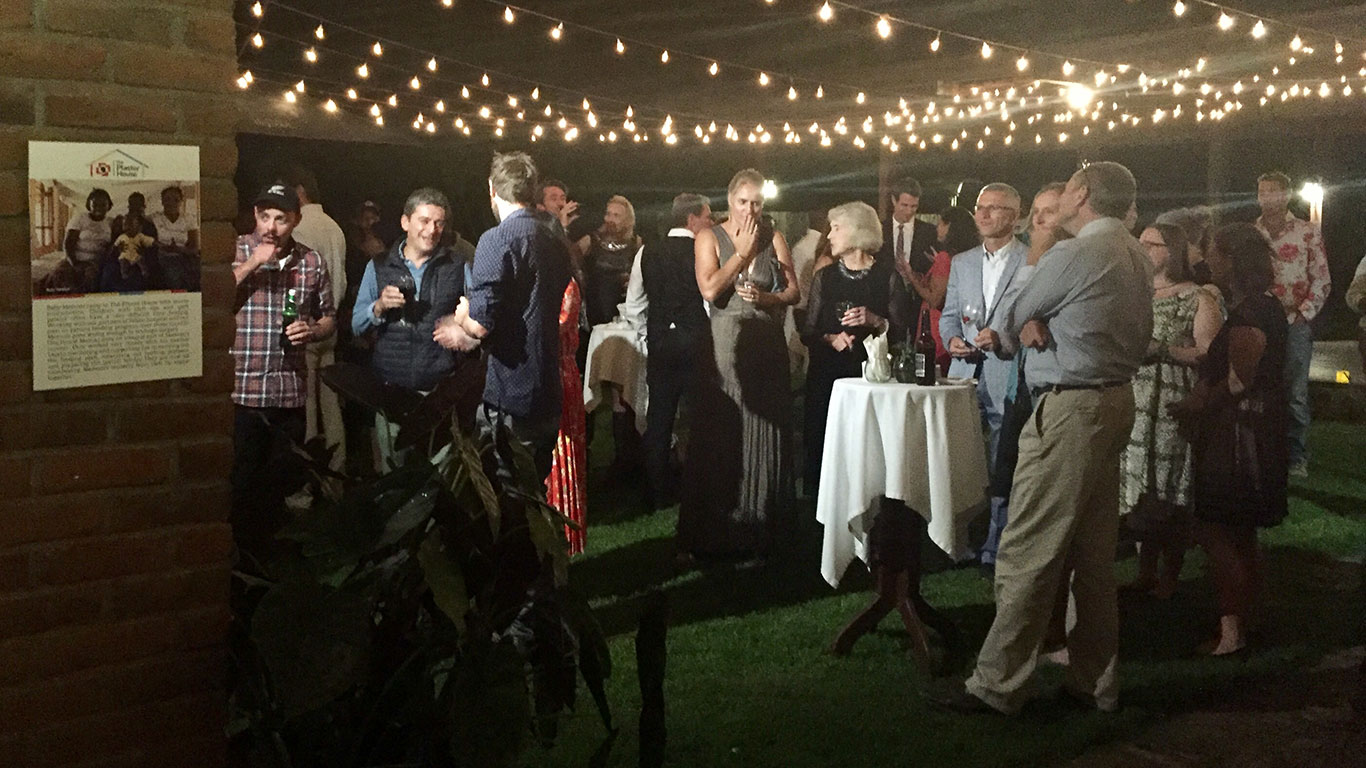
This year Plaster House hosted its 4th Annual cocktail fundraiser at Elewana Arusha Coffee Lodge. Plaster House is a Rehabilitative Surgery Program that provides corrective surgery and rehabilitation to children who have congenital or acquired disabilities. As part of its Corporate Social Responsibility, Elewana Arusha Coffee Lodge participated as an active sponsor towards this great cause by providing the venue and catering.
Nearly 100 guests participated in the silent auction that was setup at the Lounge of the Bistro. The event was a true success, as Plaster House managed to raise over USD 23,000 through its auctions, ticket sales and beautiful accessories provided by Shanga.
Richard Beatty who acted as a superb MC, cheerfully kept the guests engaged and entertained alongside David’s amazing live band. The evening was a perfect synopsis of a week that saw Surgeons who travelled from the US, performing over 50 surgeries days prior the event. In many ways the theme of the event, ‘Surgery Strong’ was well captured throughout the event.
Although Plaster House missed an important member of their team during the event, Sara Rejman, who is the organizations’ Director, as she is currently undergoing cancer treatment in Australia.
Graham Stobbart, General Manager of Elewana Arusha Coffee Lodge and Keira DiSpirito, made their speeches to thank the sponsors for their continuous contribution towards the cause, and to inform them on the amazing work that has been transforming lives.
Elewana Kilindi Zanzibar & Elewana AfroChic Diani strive to keep our beaches clean

This month saw the teams at both Elewana Kilindi Zanzibar and Elewana AfroChic Diani come together from various departments to support the Elewana commitment to a greener environment with their respective beach clean-up. It is vital that we care for our precious beaches and help our community to learn all about waste management.
Recyclable bags were used to collect the trash, which mainly consisted of plastic bottles, plastic bags and pieces of flip flops – all the items that cause such damage to the many inhabitants of our oceans, then finally ending up on our beaches and harming even more wildlife. It is a global issue that needs to be tackled by both corporations and individuals alike if we, as a generation, are going to have any impact in reducing waste not only in the oceans but on the planet as a whole.
A fantastic achievement by both teams. Elewana Collection will continue to be proactive on environmental issues and strive for a better tomorrow that the next generation can enjoy.
Three Elewana Collection properties closed for the season
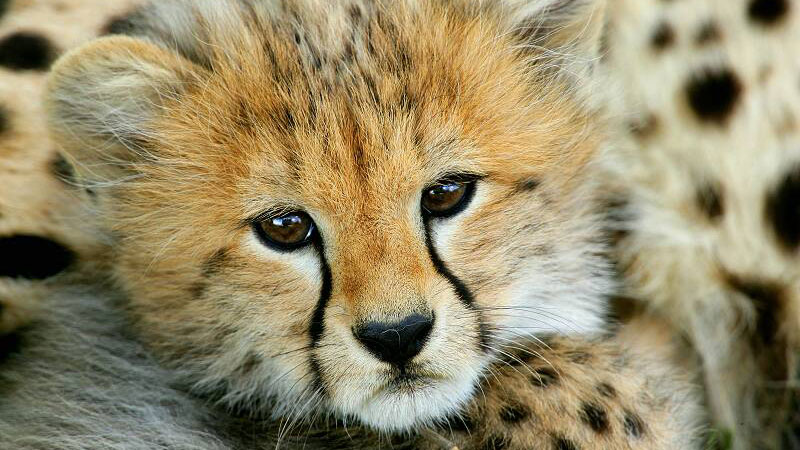
This is a reminder that the following three properties will be closed for two months from 1st April to 31st May;
Elewana Elephant Pepper Camp, Mara North Conservancy
Luxury bush camp with outstanding wildlife viewing in the heart of the Masai Mara. Elewana Elephant Pepper Camp is one of Kenya’s original, very small and exclusive tented camps, located away from other lodges in the pristine Mara North Conservancy, making it the perfect base from which to explore the wonders of the Mara. Nestled in a lush thicket of Elephant Pepper trees overlooking open grasslands frequented by herds of game, Elewana Elephant Pepper Camp maintains a rustic luxury and authenticity of a traditional safari from yesteryear.
Elewana Loisaba Star Beds, Loisaba Conservancy
Poised on a rocky kopje, the Star Beds command sweeping views over an undulating valley and a permanent waterhole, frequented by resident wildlife. Rustically designed to complement the surrounding environment, each star bed is individually built in harmony with the natural rocky features, incorporating a sitting area, and open plan bathroom with a view. Handcrafted four-poster wooden beds sit on raised wooden platforms jutting out from a thatched-roof accommodation and are rolled out each night for guests to sleep under the endless African sky.
Elewana Kilindini Zanzibar
Set in a picturesque tropical garden with its secluded beachfront, the luxurious Pavilion suites embrace wide-arched glassless windows affording spectacular views over the Indian Ocean. Each villa has its own private plunge pool and is tended to by its own Guest Ambassador. Kilindi's 'open-to-nature' approach provides the true essence to any stay and crafts a private, intimate and 'barefoot' appeal that so many crave. Explore the hidden secrets of the island or relax in the infinity pool watching the dhows head out to sea, with a gentle breeze in their sail.
We look forward to welcoming the teams back at the end of May ready for a busy season ahead.
Accessing Information for Elewana Loisaba Lodo Springs
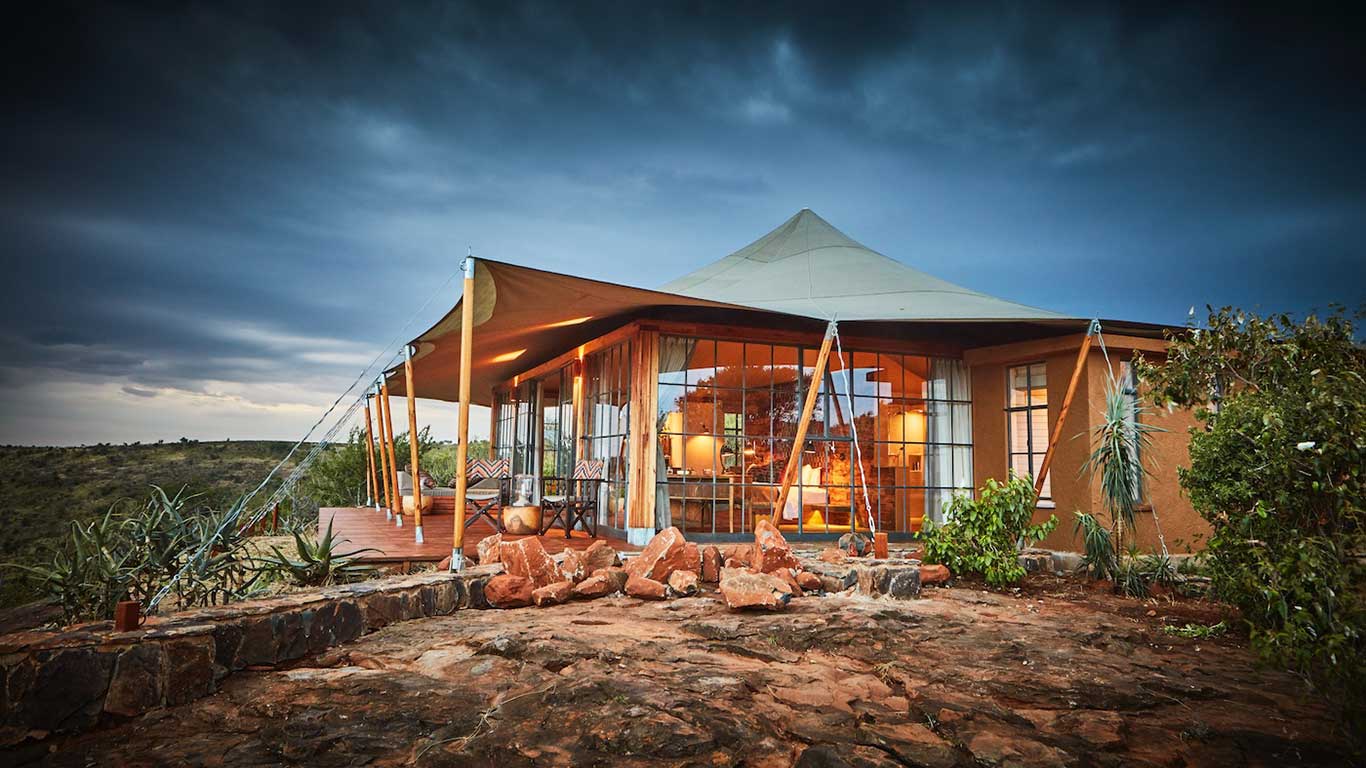
We wish to notify you that information and a selected number of images of Elewana Loisaba Lodo Springs can now be accessed via;
Elewana Collection Website
Visit Elewana Collection website at www.elewanacollection.com to view the property page. In addition you can access detailed information by clicking the DOWNLOADS button in the top right hand corner.
Our News & Information section where you can find individual updates on our properties in our Latest News or access our current or previous Newsletters by clicking Newsletters.
Newsletter
You can access information on the Elewana Collection instantly through the links at the top of the latest Elewana Newsletter that has been emailed to you;
Brochure / Information Manual / Online Availability / Land & Life / Contact Us
Elewana Trade Pack
We are happy to share a link that contains the ELEWANA INFORMATION PACK, which contains detailed information, brochures and images.
Here is the link to the INFORMATION MANUAL, which contains detailed information on all Elewana properties. Note: The best way to access updated information is to bookmark the link and access it online rather than downloading it. This will ensure you always have the latest information from us at all times.
We do not have individual fact sheets. However, for quick reference on the properties see FAST FACTS. This can be accessed from the News & Information page on our website or in the Trade Pack.
Additional Information
In the event you would like more information, please contact the Marketing team;
- Alia Bellamy (Marketing Manager) This email address is being protected from spambots. You need JavaScript enabled to view it.
- Rahab Ng'ang'a (Marketing Assistant) This email address is being protected from spambots. You need JavaScript enabled to view it.
Enquiries & Bookings
- To enquire about staying at Elewana Loisaba Lodo Springs, please use the enquiry form.
- Alternatively, contact the Reservations team; This email address is being protected from spambots. You need JavaScript enabled to view it.
Elewana Collection marks World Wildlife Day
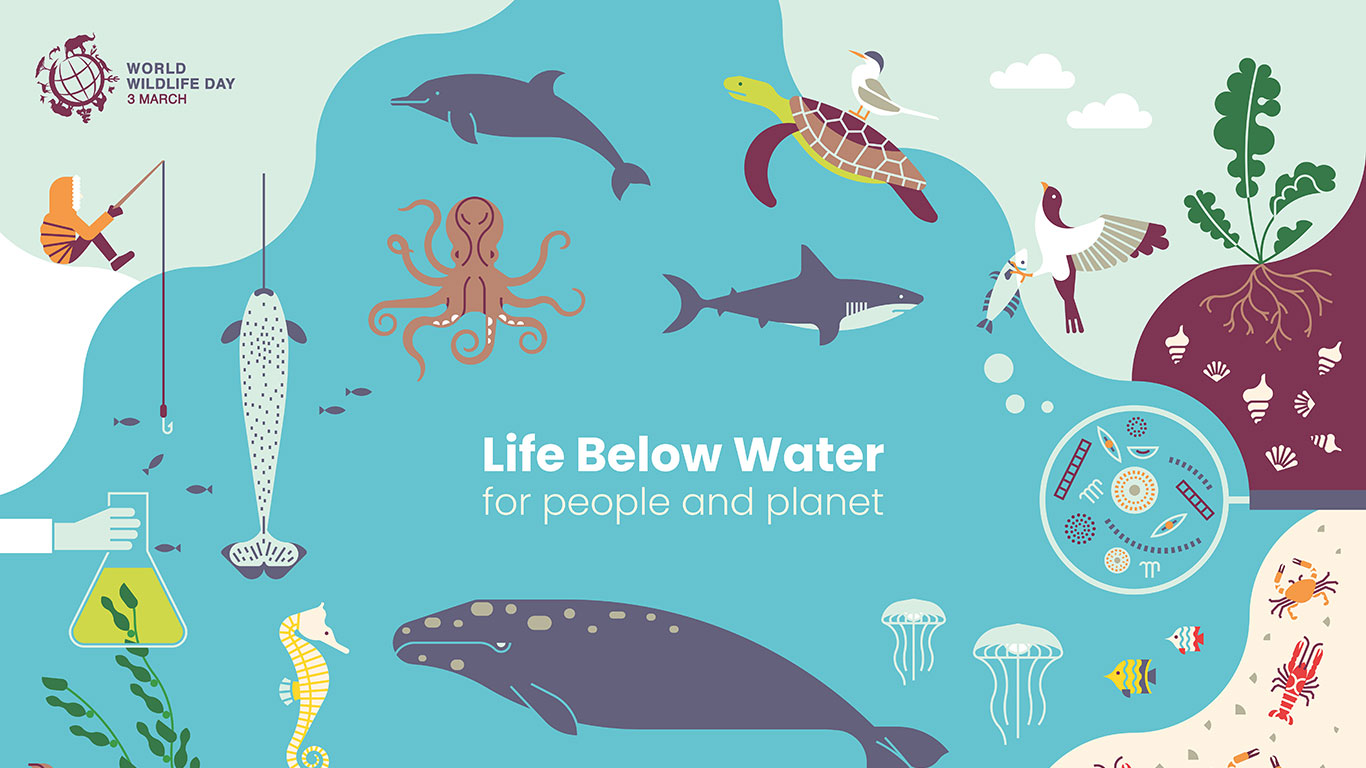
The United Nations General Assembly (UNGA) on 20 December 2013, proclaimed 3 March, the day of signature of the Convention on International Trade in Endangered Species of Wild Fauna and Flora (CITES), as UN World Wildlife Day to celebrate and raise awareness of the world’s wild animals and plants. World Wildlife Day has now become the most important global annual event dedicated to wildlife. World Wildlife Day this year celebrated under the theme “Life below water: for people and planet", which aligns with goal 14 of UN Sustainable Development Goals.
Over three billion people depend on marine and coastal biodiversity for their livelihoods. Marine wildlife has sustained human civilization and development for millennia, from providing food and nourishment, to material for handicraft and construction. It has also enriched our lives culturally, spiritually, and recreationally in different ways.
The capacity of life below water to provide these services is severely impacted, as our planet’s oceans and the species that live within it are under assault from an onslaught of threats. As much as 40% of the ocean is now heavily affected by the most significant and direct threat of over exploitation of marine species as well as other threats such as pollution, loss of coastal habitats and climate change. These threats have a strong impact on the lives and livelihoods of those who depend on marine ecosystem services, particularly women and men in coastal communities.
This was the first World Wildlife Day to focus on life below water and was a great opportunity to raise awareness about the breath-taking diversity of marine life, the crucial importance of marine species to human development, and how we can make sure it will continue to provide these services for future generations.
Hannah Wood from the Land & Life Foundation made a video during her visit to Elewana AfroChic Diani emphasising the importance of partnering with local communities to ensure the safety of our Marine species.
East Africa has a breathtaking coastline with the beautiful blue sea of the Indian Ocean lapping its sandy white beaches. The variety of creatures above and below the water line are abundant and we need to protect them and ensure that their environment is preserved so generations to come can continue to enjoy the pleasures of a coastal holiday but also for the communities that depend on this ecosystem for their livelihood.
A round up of activities on World Forest Day
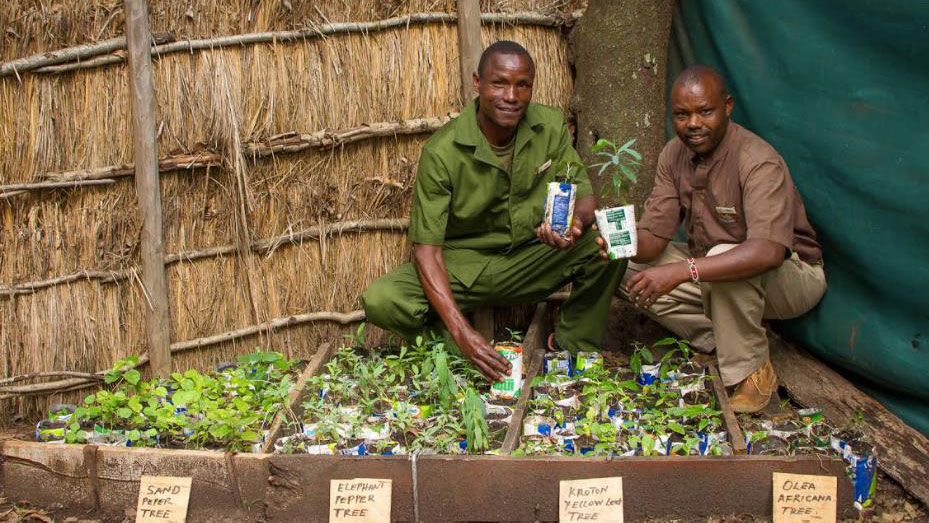
Every year on the 21 March the United Nations raises awareness of the importance of all types of forests. This year the International Day of Forests promotes education to Learn to Love Forests. It underscores the importance of education at all levels in achieving sustainable forest management and biodiversity conservation. Healthy forests mean healthy, resilient communities and prosperous economies.
At Elewana, we're committed to protecting and conserving our environment. Most recently, we've partnered with SeedballsKenya, allowing our guests at Elewana Loisaba Tented Camp and Elewana Tortilis Camp, to learn more about the indigenous shrubs and trees in the regions, and participate in reforesting these areas.
At Elewana Elsa's Kopje we encourage guests to plant trees during their stay with us and, students enrolled in our Wildlife Warrior program run by our charitable arm Land & Life Foundation, also learn about conservation efforts and how they can participate in making changes that are beneficial for the future generations. It's, therefore, fitting that this year's theme is 'Forests and Education' as understanding our forests and keeping them healthy is crucial for our future.
We love planting trees at Elephant pepper Camp - in 2018 we have planted nearly 200 trees in and around the camp. Trees were planted by our staff, guests and the local community. This year we have expanded our tree planting project to 5 different species of indigenous trees to Mara North Conservancy. We keep on planting...
As we celebrate the International Day of Forests, we recall Dr. Jane Goodall, who was recently here with at Elewana Arusha Coffee Lodge, and planted a tree with children from the neighbouring local schools. Education is a central part of conservation, and she has spent her life inspiring others to conserve the natural world we all share.
The team at Elewana The Manor at Ngorongoro donated some trees and hedge saplings to Ganako Primary School to add some green to the school playground and celebrate World Forest Day, their main focus was Forests and Education – Learn to Love Forests!
Elewana Tarangire Treetops are proud of the work done by Randilen Wildlife Management Area, whose rangers not only protect wildlife, but are also responsible for protecting the woodlands from deforestation.
Forests, their sustainable management and use of resources, including in fragile ecosystems, are key to combating climate change, and to contributing to the prosperity and well-being of current and future generations.
Forest Facts;
- Forests cover one third of the Earth's land mass, performing vital functions around the world. Around 1.6 billion people - including more than 2,000 indigenous cultures - depend on forests for their livelihoods, medicines, fuel, food and shelter.
- Forests are the most biologically-diverse ecosystems on land, home to more than 80% of the terrestrial species of animals, plants and insects.
- Yet despite all of these priceless ecological, economic, social and health benefits, global deforestation continues at an alarming rate - 13 million hectares of forest are destroyed annually. Deforestation accounts for 12 to 20 percent of the global greenhouse gas emissions that contribute to climate change.
World Water Day with Elewana Collection
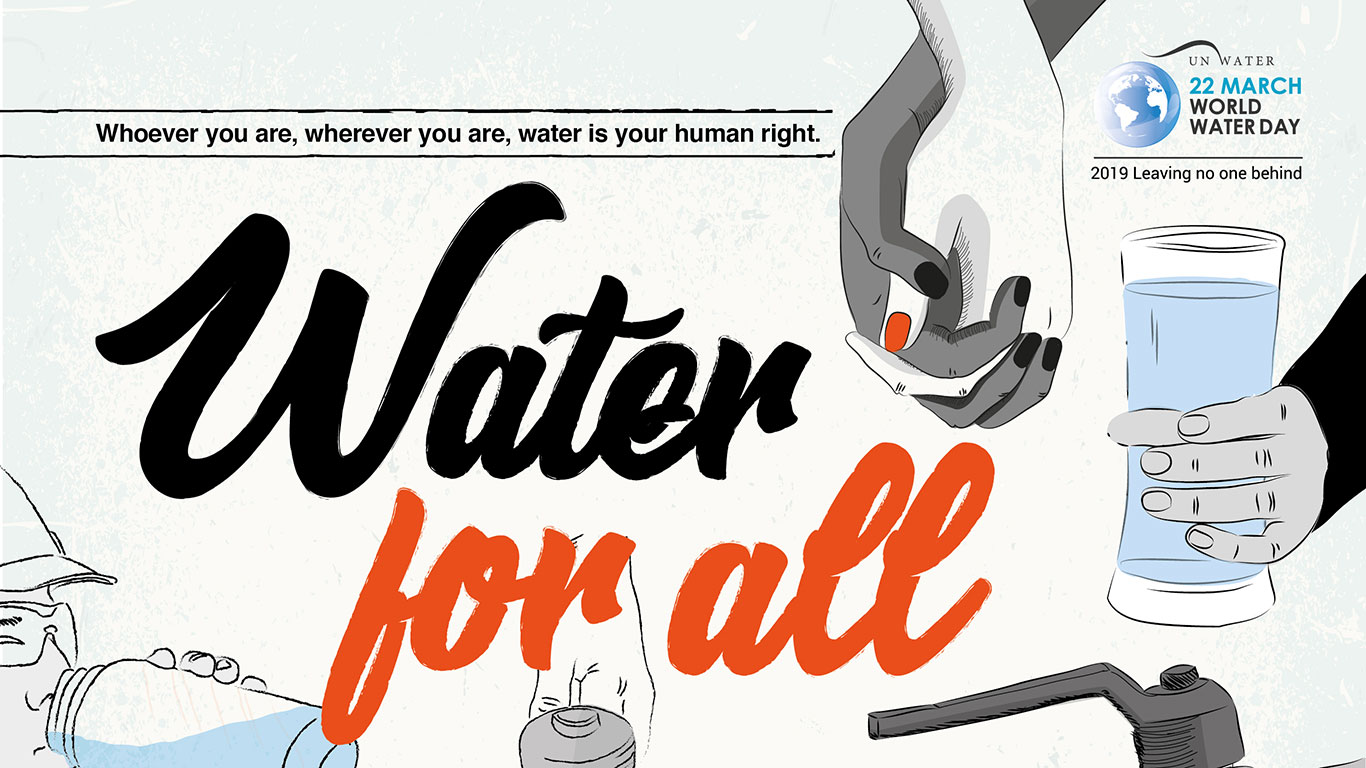
This World Water Day, 22nd March, was about tackling the water crisis by addressing the reasons why so many people are being left behind.
Sustainable Development Goal 6 is crystal clear: water for all by 2030. By definition, this means leaving no one behind. But today, billions of people are still living without safe water – their households, schools, workplaces, farms and factories struggling to survive and thrive.
We are proud of the work we do as a collection to increase access to clean water supplies in the communities we work with. World Water Day acts as a reminder to us all that many are still tackling the water crisis and we need to stand together to address the reasons why so many people are being left behind.
Our properties in Kenya and Tanzania makes every drop count by conserving water in a number of ways, some of these include;
- Elewana Sand River Masai Mara: Land & Life have just finished installing a water tank, rainwater harvesting and plumbing in Embiti Primary School
- Elewana Loisaba Tented Camp: BioBox water treatment to treat all black and grey water in order to recycle it more efficiently.
- Elewana Elephant Pepper Camp: a natural reed bed water treatment was built to filter and recycle used water.
- Elewana Lewa Safari Camp: is in the process of building a natural water treatment plant for the kitchen waste water.
- Elewana Tortilis Camp: a reverse osmosis water treatment system plus 3 stage filter and UV treatment was installed to recycle the used water in camp. A drip irrigation system was installed at Esiteti School to recycle water into the Shamba project, so they could produce their own vegetables.
- Elewana Elsa's Kopje: Reverse osmosis system was installed and provides clean drinking water and therefore saves cost of buying and transporting bottled water.
As a company we are conscious of the environment and preserve water by asking guests to reuse their towels to save on water, especially as the areas our properties are located water is scarce.
A well of knowledge;
- 2.1 billion People live without safe water at home.
- One in four primary schools have no drinking water service, with pupils using unprotected sources or going thirsty.
- Globally, 80% of the people who have to use unsafe and unprotected water sources live in rural areas.
- Around 159 million people collect their drinking water from surface water, such as ponds and streams.
- Around 4 billion people – nearly two-thirds of the world’s population – experience severe water scarcity during at least one month of the year.
- 700 million people worldwide could be displaced by intense water scarcity by 2030.
From Our Partners
Conservation fee increase at Lewa Wildlife Conservancy for 2020
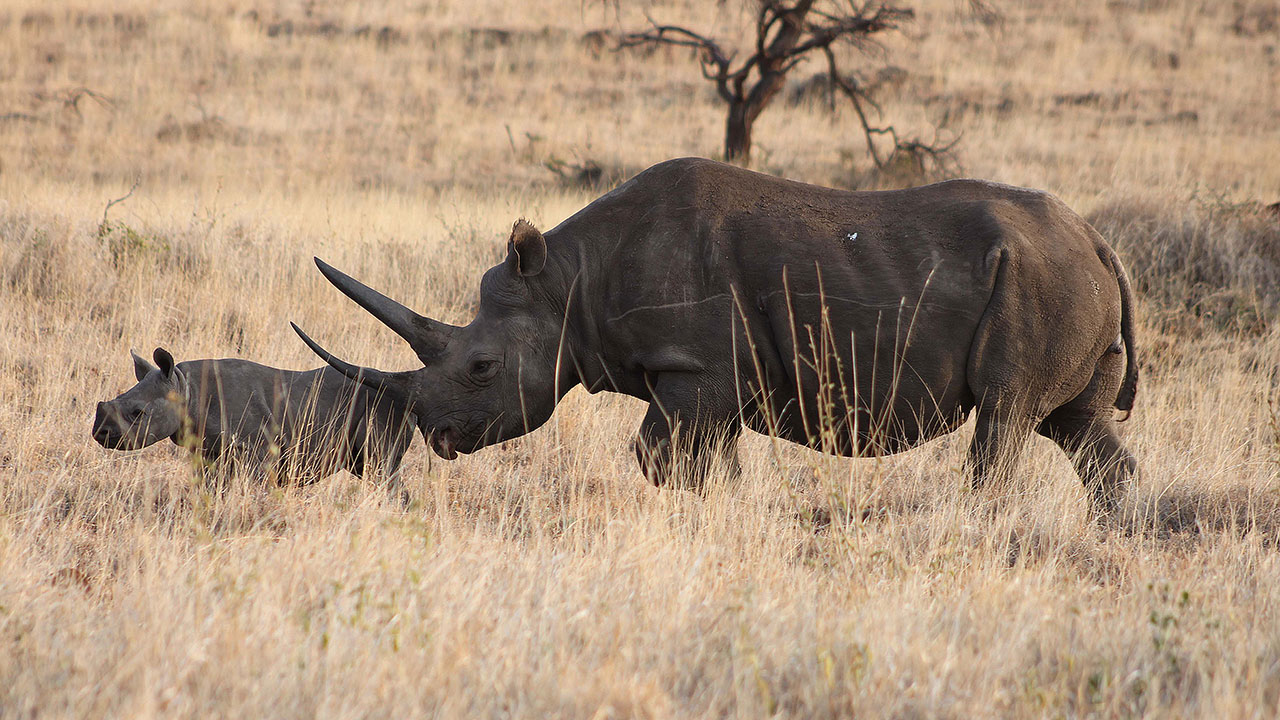
Elewana Collection would like to notify our Partners that Lewa Wildlife Conservancy have announced a fee increase for 2020, as follows;
Non Residents:
- Overnight non Kenyan residents US$ 109 + VAT = US$ 126
- Day non Kenyan residents US$ 170.50 + VAT = US$ 198
- Zoo Group (LWC Approved) US$ 70 (January & October) US$ 58 (March – June, November & December)
- Agents US$ 33 + VAT = US$ 38
Kenya Residents:
- Overnight Kenyan residents Ksh 2,420 + VAT = Ksh 2,800
- Day Kenyan residents Ksh 6,960 + VAT = Ksh 8,074
Children 6-12 years of age 50% of the above applicable fee
Bookings made for Elewana Lewa Safari Camp and Elewana Kifaru House will need to advise their clients of the revised fees and update information for future bookings.
Lewa Wildlife Conservancy
Lewa was previously a cattle ranch owned by David and Delia Craig. In 1995 they decided to dedicate their entire ranch to the conservation of wildlife, especially the critically endangered rhino. The Conservancy covers 65,000 acres of pristine African wilderness, with dramatic views of snow-capped Mt Kenya to the south, and the arid lands of Tassia and Il Ngwesi to the north, Lewa showcases a range of wild habitats from highland forests, wide open grasslands, melt-water mountain springs and acacia woodland and supports over 440 bird species with more than 70 different animal species roaming the vast landscape..
Through the protection and management of wildlife species, the initiation and support of community conservation and development programmes, and by educating the local youth in the value of wildlife, Lewa has reversed a decline in several endangered species, most famously rhino and Grevy’s zebra. Since 1984 its rhino population has grown steadily, not only restoring local numbers but enabling the reintroduction of black rhinos into other regions of East Africa - where they had long been extinct. The Conservancy currently holds over 10% of Kenya’s black and 15% of Kenya’s white rhino population as well as the largest single population of the critically-endangered Grevy’s zebra in the world.
The Conservancy also carries out extensive outreach work into the surrounding tribal communities with its Community Development Programme and has improved the livelihoods of hundreds of families living on its boundaries with its healthcare, micro-finance, community-managed water projects and education programmes for both adults and children.
Lewa Wildlife Conservancy was included in the prestigious IUCN Green List of Protected areas, one of only 3 Kenyan organisations to feature! The IUCN (International Union for the Conservation of Nature) is the global authority on the status of the natural world and the measures needed to safeguard it.
Beemagic with Elewana Collection
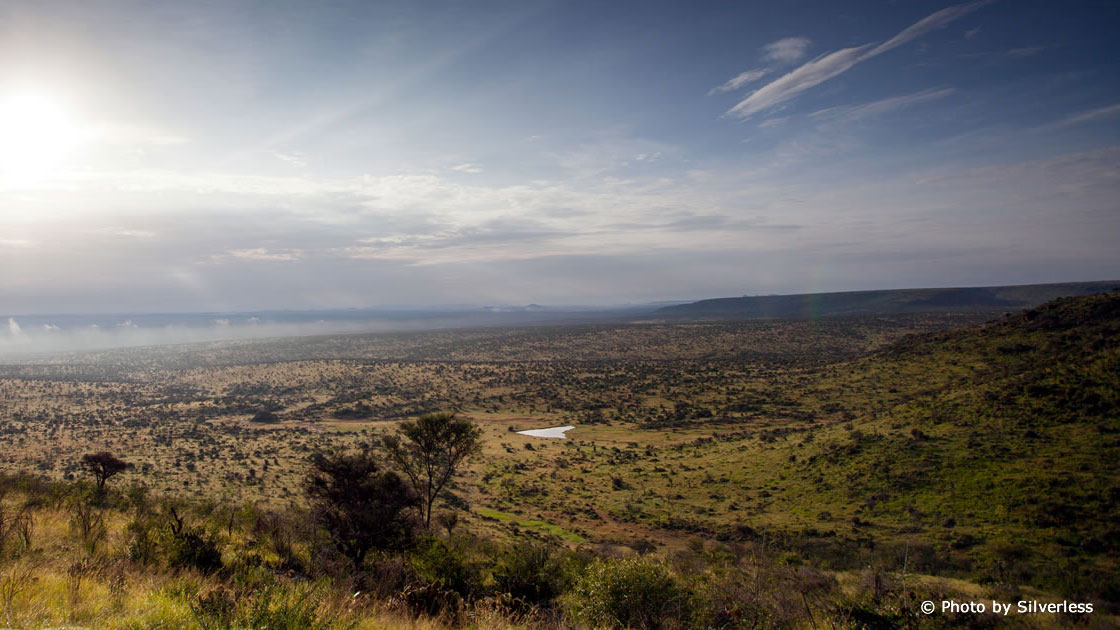
The future is not bright for the little honeybee. In Kenya, bees are being destroyed by the widespread use of harmful pesticides. Whilst the destruction of habitat and disease are making it even more difficult for these essential pollinators to survive as their environment disappears. There are only a few pockets left in the world where bees can thrive!! Northern Kenya is one such place. Elewana Collection has partnered with Beemagic ltd to source honey and beeswax products from pastoralist communities in the Ndoto Mountains and Loisaba conservancy. The project is creating an additional source of income for pastoral communities whilst contributing to conservation.
Traditional beekeepers go to extreme lengths to acquire honey – they will climb the tallest trees, and risk their lives just to acquire a few kilos. In the process, wild hives are usually destroyed with the entire contents being removed from the hive, leaving nothing for the bees. Open fires are used to smoke out the bees, and a careless beekeeper can set fire to huge expanses of pristine forest. Each year, these northern water towers lose hundreds of hectares of forest because of fires – destroying thousands of colonies of bees as well as many other endangered species.
Beemagic are working tirelessly to try and improve bee-keeping methods in Northern Kenya. By providing training and equipment, communities are able to increase the amount of honey they are producing and improve the quality. By using safe smoking devices, the forest fires have decreased and there is less loss of biodiversity.
By sourcing directly from these areas, Elewana are helping to create a market for this organic, raw honey and in turn, provide income for hundreds of beekeepers. Introducing this alternative means of income has relieved the pressure on natural resources and is helping to reduce land degradation. What makes this gourmet honey special is that it is Raw – meaning that it has not been boiled, processed or micro filtered and it still contains all the beneficial enzymes. Careful quality control means that the honey is simply extracted from the combs and is ready for consumption. Furthermore, the honey is varietal – throughout the season different tree species flower, each with a unique aroma and taste.
Honey pot of flavours:
There are two types of honey;
- Spicy Euphorbia - This honey has a naturally occurring slightly spicy aftertaste, making it a good option for 'dawa' cocktails and cooking.
- Acacia etbaica - This is the darker honey that is good for tea, toast and general use at the breakfast table.
Elewana in the Community
Land & Life Foundation Annual Report is out
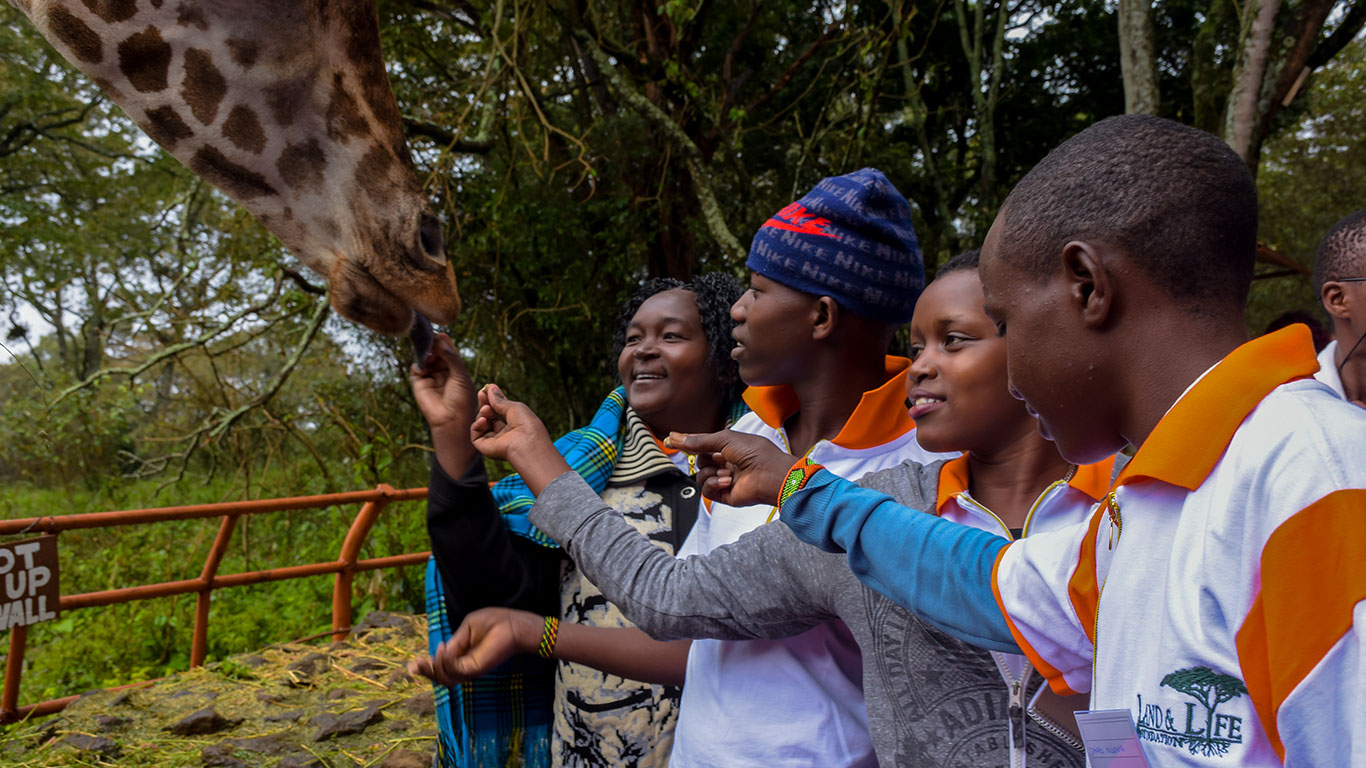
If you would like to know what they did where, when and with whom in 2018 then Click here to read and download their ANNUAL REPORT.
The Land & Life Foundation is committed to ensuring that local communities receive revenue and tangible benefits from tourism. Over the years since its inception in 2011, the Foundation has achieved a great deal in ensuring that communities living in the vicinity of wildlife areas genuinely benefit from tourism.
The Land & Life Foundation is supported by the Elewana Collection and Cheli & Peacock Safaris, as well as our sister conservation organisation in Thailand, the Golden Triangle Asian Elephant Foundation, and Minor International.
As all their operational costs are covered, 100% of every donation received goes directly to the supported schools and communities. Every penny goes straight to the ground, where it is needed most. Land & Life focus on four types of programs for communities living alongside wildlife across Kenya and Tanzania: Wildlife Warrior Program, Nature Conservation, Medical Support and School Support.
Recycled Sunflower Seed oil used to energise glass furnace at Shanga
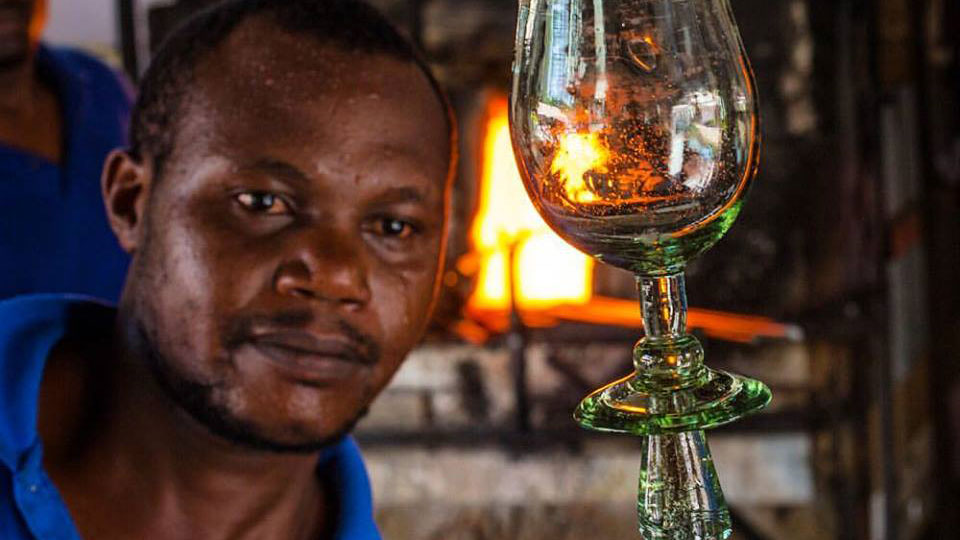
Shanga loves to recycle what others no longer have a need for and transform it into hundreds of amazing products. If it can’t be transformed into something beautiful then they will try to find another way to recycle it. One very creative and innovative recycling has come from a very surprising source…..old Sunflower Seed Oil. They receive oil from the Elewana properties as a by-product from their kitchen as well as other local suppliers. For a number of years Shanga has been using Sunflower seed oil for energizing a glass furnace and the medium size Glory-hole. The glass furnace produces a wide variety of glass ware such as drinking glasses, bowls, jugs, carafes and house decorations. Shanga may be the only place in the world to use Sunflower Seed Oil in glass melting for art glass.
Sunflower seed oil is a domestic product in Tanzania and certain regions are a major producer, accounting for over 20 percent of national production. SunFlower Seed oil is renewable in a sustainable manner, converting the energy of daily solar radiation to chemical energy through a biological vector in large sunflower plantations. The sunflower seed oil has zero carbon footprint, meaning in the plantations the carbon dioxide from ambient air is sequestered into a hydrocarbon compound, which is converted into a liquid form then finally ending up being used to energize the Shanga furnace in an exothermic reaction together with ambient oxygen.
In Tanzania there are over 4.2 million people living with disabilities, which has a significant impact on health, education and employment, especially as people with disabilities get shunned from the community and find it nearly impossible to find work. Shanga by Elewana is successful social enterprise with an interactive workshop that employs people with disabilities and empowers them through training to create unique, high quality, handmade jewellery, glassware and homeware using recycled materials, giving them a chance to develop a sense of self confidence, a successful career and in turn support their families, making a better life for them all.
Basley is a glass blower, who was born deaf, originally trained as a carpenter, but no one would hire him due to his disability. Basley ended up in Arusha and approached Shanga, where he produces a wide variety of glassware such as water glasses, bowls, jugs, carafes & various house decorations that is sold all over the world.
By providing employment opportunities Shanga empowers individuals such as Basley, to produce products that are sold in Tanzania and all over the world, with profits being reinvested back into developing opportunities to employ more people with disabilities.
Training
Management Training Program with Elewana Collection
 We are delighted to announce that Phoebe Belcher is the first to complete our Management Training Program and did so with flying colours.
We are delighted to announce that Phoebe Belcher is the first to complete our Management Training Program and did so with flying colours.
Born and brought up in Kenya, Phoebe developed a love for animals early on. Having been raised by parents in the safari industry, she spent many of her early years in the bush and most of those years on Loisaba. She has a passion for photography and has developed this skill during her spent in the bush
Phoebe joined Elewana Collection in 2016 taking on the role of Activities Coordinator at Elewana Loisaba Tented Camp and two years later, in 2018 was appointed as a Management Trainee, becoming our first candidate for our mentored training program in Kenya.
As a management trainees each commits to a set program of two years mentorship, during which time the trainee covers various areas of the lodge operations inclusive of guest experience, the different departments as well as supportive functions such as accounts, logistics, stores, compliance, licensing and human resources. After successful completion of the management trainee program each candidate will be appointed in junior management role in one of the Elewana properties.
Phoebe excelled during her training and completed all tasks ahead of schedule - to the point that Phoebe has graduated nearly ten months ahead of schedule, completing her program on the 31st of March. This is a major accolade and we are extremely proud of her and we would like to welcome Phoebe in her new appointment as Relief Manager as from the 1st April 2019.
Update on the Elewana Guide Apprentice Program
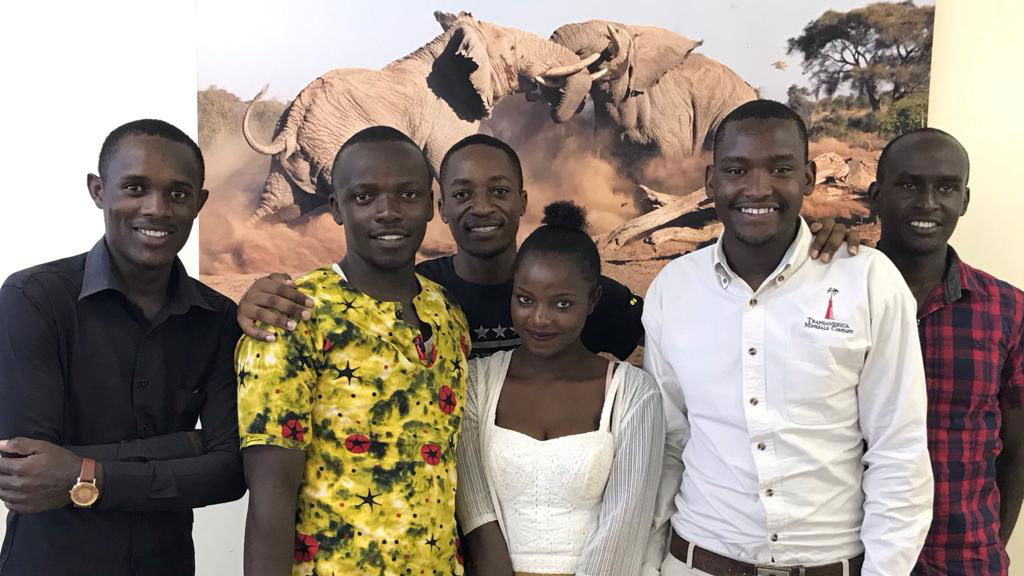
Last year 14 hopefuls joined our first Guide Apprentice Program, eight in Kenya and six in Tanzania who have successfully completed their first year and progress to face the challenges of year two. This year we take on six new apprentices in Kenya and four in Tanzania, to follow in their footsteps.
The apprentice programme runs for two years - the minimum time needed to ensure that a trainee guide gets sufficient hours to gain the practical knowledge required across a broad skills base. The first six month are spent working across a number of different lodge functions and departments to make sure they have a thorough understanding of all elements that incorporate a guest’s stay before they progress to learning how to guide.
Each apprentice guide in Kenya will need to qualify as a Kenya Professional Safari Guide (KPSGA) and to complete FGASA level 1 in the first year, which includes an understanding of the natural environment plus a sound knowledge of the history, geology, plants and animals in their geographic area of guiding.
In year two each apprentice will work alongside other senior Elewana guides and sit for FGASA level 2, which covers advanced birding and botany, people skills & communication and tracking.
The Guide apprentice programme is fundamental as Elewana works to empower, support and recruit from our local communities and our goal to have an elite team of guides, ensuring that our Guest experience is second to none.
| We would like to welcome the following apprentices and wish them all the best in their first year; | Congratulations to all those below who have completed the first year ; | ||
Kenya
| Tanzania
| Kenya:
| Tanzania:
|
Awards & Voting
Elewana Lewa Safari Camp is proud to achieve Gold Eco-rating
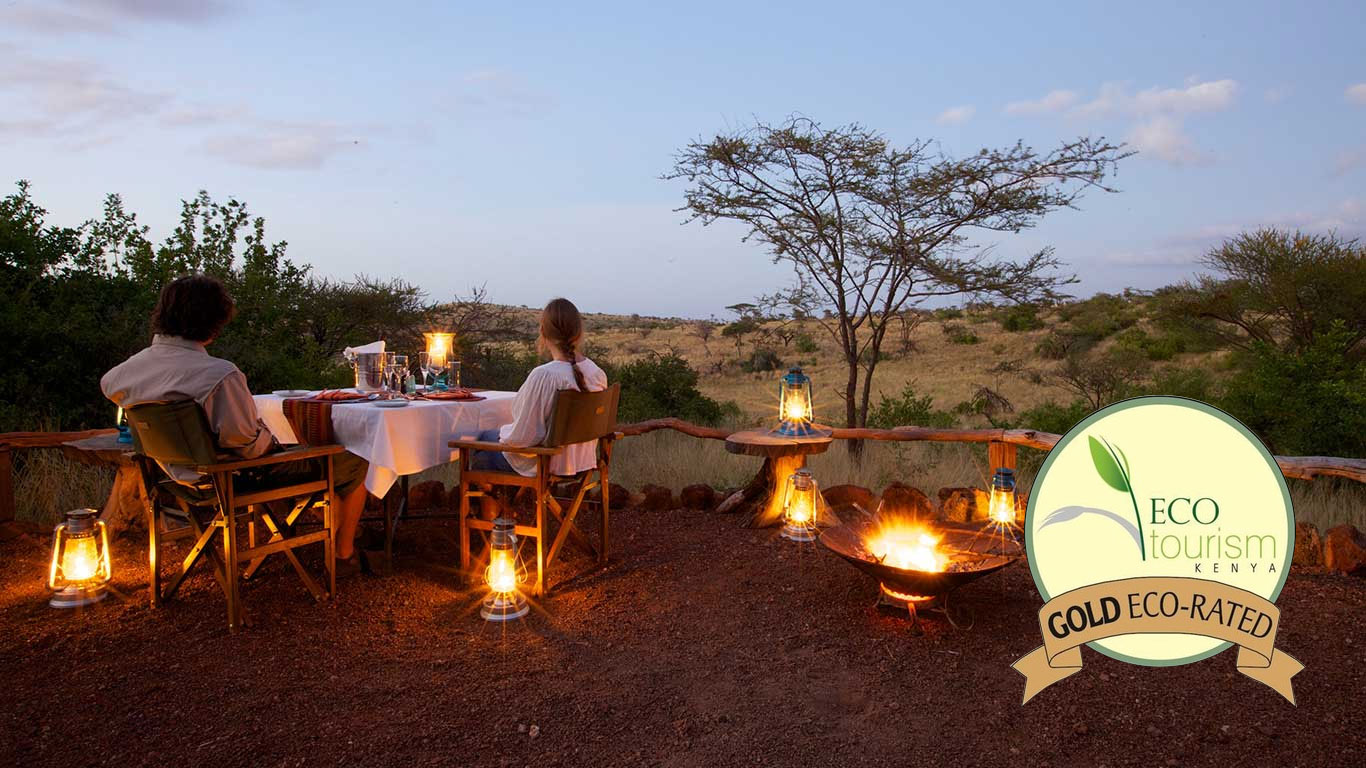
We are proud to announce that Elewana Lewa Safari Camp has retained our Gold Eco Rating Certification, which is the highest level of tourism certification standard!! Elewana Lewa Safari Camp has joined 4 other Elewana properties and 35 other facilities in Kenya that have achieved this level.
Ecotourism Kenya promotes responsible tourism practices within the tourism industry and encourages the adoption of best practices in the use of tourism resources, working with local communities and managing wastes and emissions.
Lewa Safari Camp was originally built as the rhino manager’s house in the 1980s. A separate cottage was added when he got married! The current main lounge and dining room is the original house, and the Spa is in the cottage that was added. At that time the rhino sanctuary was only 5000 acres, in the area surrounding the camp, and supported by conservationist Ana Mertz.
As the success of the rhino breeding and protection program grew, and eventually the whole property became a rhino conservancy, the rhino management and protection was moved to the Conservancy Head Offices and the house was turned into “Lewa Safari Camp” in 1995. Client tents were added, and the lodge was managed by the Conservancy until they put it out to tender in 2009 and the management was awarded to Cheli & Peacock. Elewana Collection then acquired Cheli & Peacock and the management of Lewa Safari Camp was awarded to us in 2014.
Elewana Lewa Safari Camp is one of only two tourism properties owned by the Conservancy itself, with the aim of boosting the conservancy’s revenue through camp occupancy. All camp profits and conservancy fees generated by the camp are reinvested directly into the conservation and community efforts of Lewa Wildlife Conservancy.
Together with our Partners, Lewa Wildlife Conservancy we continue to support and develop the local community and various conservation projects and strive to ensure our carbon footprint is kept at a minimum.
Congratulations to the team and we acknowledge their commitment and passion to ensuring we were presented with this prestigious award.
Elewana Lewa Safari Camp
Elewana Lewa Safari Camp is a unique and exclusive retreat, featuring large tented bedrooms each with its own veranda and full en-suite bathrooms. Enjoy a host of activities from walking safaris, horse or camel rides, visit to the new joint operations centre and cultural experiences or simply relax by the swimming pool and enjoy the tranquillity.
Travel Updates
Best reasons to Getaway to the Indian Ocean Mid-Season
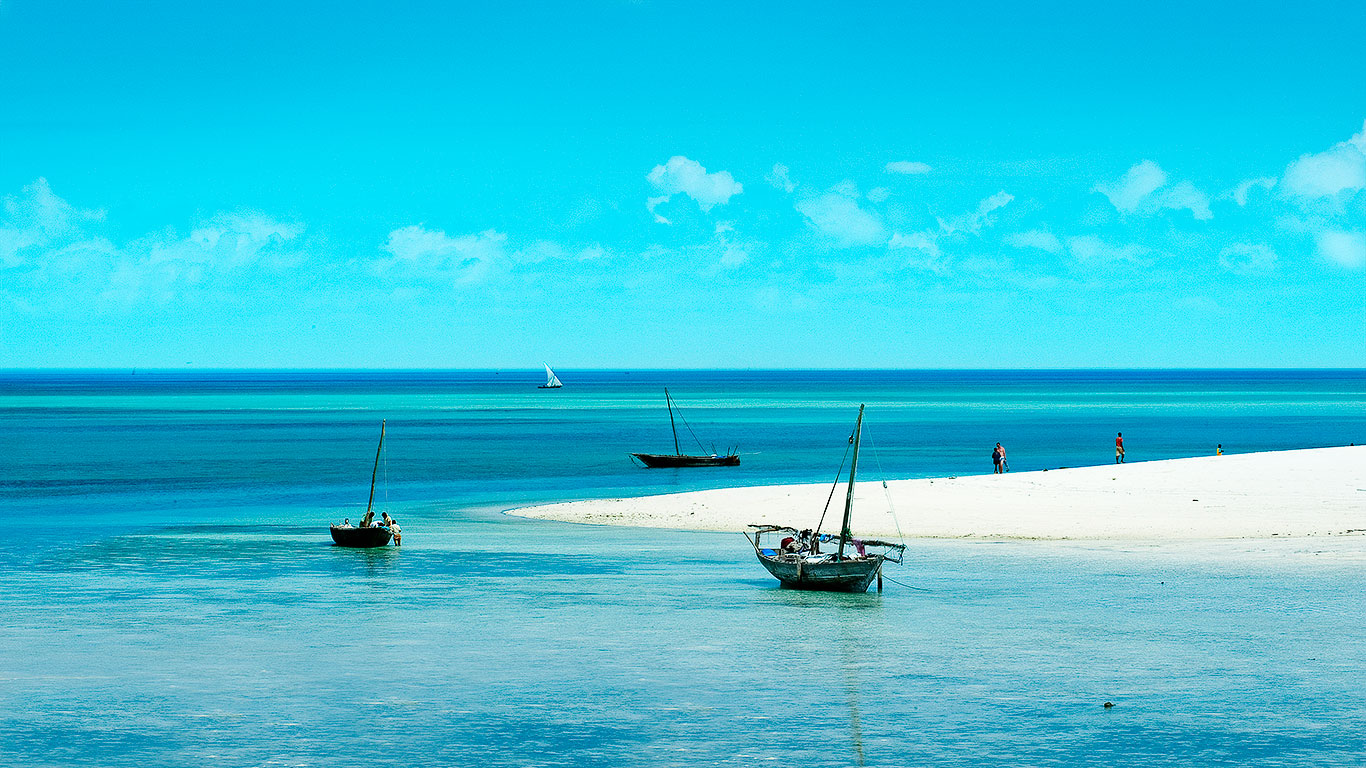
Elewana Collection has two stunning beach properties, one on the Kenya coast located on Diani Beach, a magical setting where white sandy beaches, rustling palm trees and the warm waters of the Indian Ocean are a stone throw away. Elewana AfroChic enjoys beach front ocean views and delicious sea breezes on a quieter, more secluded section of Diani Beach. Voted as one of the top 25 beaches in the world in the Trip Advisor Traveller’s Choice awards, Diani Beach is the ultimate holiday destination with a wide variety of activities and excursions on offer.
A plethora of water sports is available, where guests can enjoy scuba diving in prime spots that offer a number of dive sites for those that are just beginning to those that are more advanced and want to explore shipwrecks. Regardless of ability there is so much to see under the waves; white tipped reef sharks, rays, turtles and so much more. The coral heads have a myriad of colourful tiny reef fish to marvel at and the occasional octopus can be spotted. The best months are from September to April, the weather is perfect and diving conditions optimal for those wanting to explore the ocean floor. If you are unable to dive, snorkelling offers just as much in the shallower waters and trips to Wasini can be arranged, November being the best time as the waters are calm and visibility is crystal clear.
For those that want to stay dry but still explore the ocean from above, sailing and boat trips can be arranged, with the opportunity of seeing Humpback Whales from July to October as they travel annually in their thousands from the Antarctic to Kenya to breed and have their calves in Kenya's safe tropical waters. Humpback whales are among the most acrobatic of whales, and spend time leaping or ‘breaching’ to communicate, play, or give themselves a mini spa to remove unwanted skin parasites. Another marine animal that can be seen along the Kenya coast is the Whale Shark and the best months to spot the largest fish in the world is from February to March.
A very special experience to witness is turtles hatching and Elewana AfroChic has its own hatchery on the beach in front of the hotel. This is unpredictable as it depends on when the eggs are laid and collected to be transported to the safety of our hatchery. Last year we were extremely fortunate to have six nests hatch, three between April and May and then another three in September and October with a total of approximately 370 tiny turtles emerging and making their way to the ocean to our guests delight. With such a variety of options, visitors to Diani have the ability to make their holiday what they want.
The second destination is on the magical Island of Zanzibar with its sandy white beaches, turquoise-blue water and swaying palm trees and should be on everyone’s bucket list of places to visit. The historic Spice Island seems to have been lost in time with its narrow streets, carved doorways and ancient trade routes. As you head to the north of the island, Elewana Kilindi overlooks the ocean that has witnessed the spice trade route for over 500 years. Facing west, you can witness the sun set as you relax on your private balcony.
Explore the hidden secrets of the island with a trip to Jozani Forest to watch the rare and endangered Red Colobus monkeys, which is a species of red colobus monkey endemic to Unguja, the main island of the Zanzibar. Visit early in the year to see the new-borns fumble in the trees as they learn to climb and once you are ready to move on, continue your tour of the Jozani forest, passing along a few trails through the variety of flora and fauna. A visit to Stone Town, a UNESCO world heritage site, is a must and a place where history still lives. The stone buildings, meandering alleyways, and markets still existing as they have done for centuries make for a fascinating day of exploring.
Guests can also enjoy day boat trips, scuba diving and snorkelling to get a glimpse of the dolphins, copious fish and vivid corals that thrive in Zanzibar’s waters. The Humpback whale migration takes place between July and September each year. During this time there is also a slight possibility to see whale sharks around Mnemba Island. A boat trip to Prison Island (Changuu) can be arranged to learn its fascinating history but also hosts more than 100 giant tortoises, a collection of endangered Aldabra giant tortoises, which were originally a gift from the British governor of the Seychelles.
Your time in the coastal destinations of the Indian Ocean can be as active or as leisurely as you wish, with a multitude of experiences to enjoy from water based sports to exploring the secrets these beautiful destinations hold or simply the favourite coastal pastime of relaxing and soaking up the sun. The world is your oyster but the pearl is found here.
Travellers to Zanzibar be advised that plastic has been banned
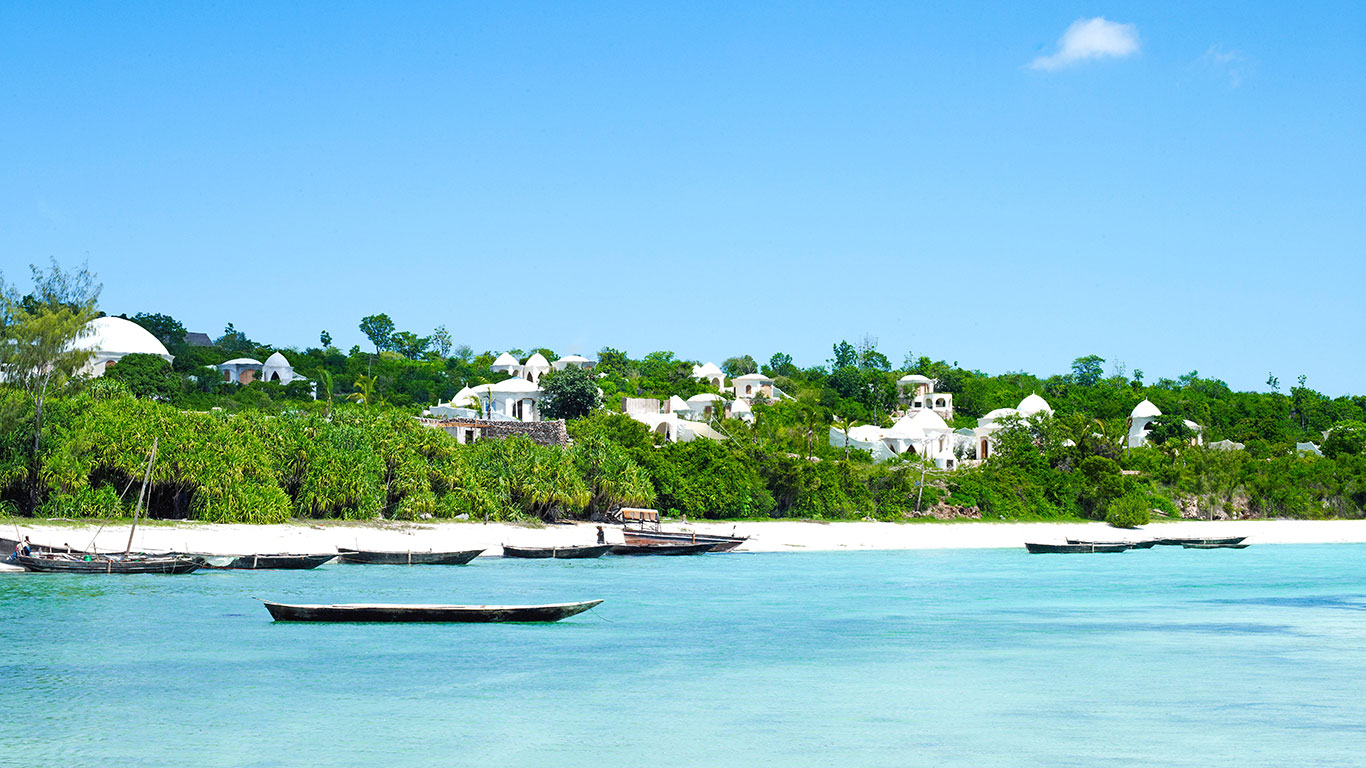
Passengers to Zanzibar are being warned not to travel with single-use plastics to the island. This comes after the government began to strictly enforce a ban on all plastic bags, including zip lock bags, which was announced in October last year.
When reading the distressing impact of single-use plastic on wildlife and the environment we must all recognise that plastic never goes away. Plastic is a durable material made to last forever, yet 33 percent of it is used once and then discarded. Plastic does not biodegrade; it only breaks down into smaller and smaller pieces – Elewana is proud to have taken such a stand and joined the many organisations around the world to eliminate its plastic waste.
Elewana Collection has made considerable efforts to reduce its carbon footprint on the world around us. We strongly believe in the importance of conservation and we do our best to promote these values with the communities we work in, with our teams, and of course with our guests. In the last couple of years we have made great strides in reducing single use plastic. We started with the #banthebottle initiative, eliminating our use of plastic water bottles, and then at the beginning of last year, we were the first property group in East Africa to eliminate the use of plastic straws across all our properties. We now offer biodegradable paper straws and encourage guests to go to #warwiththestraw.
Kenya Airways and Alitalia Sign Codeshare Deal
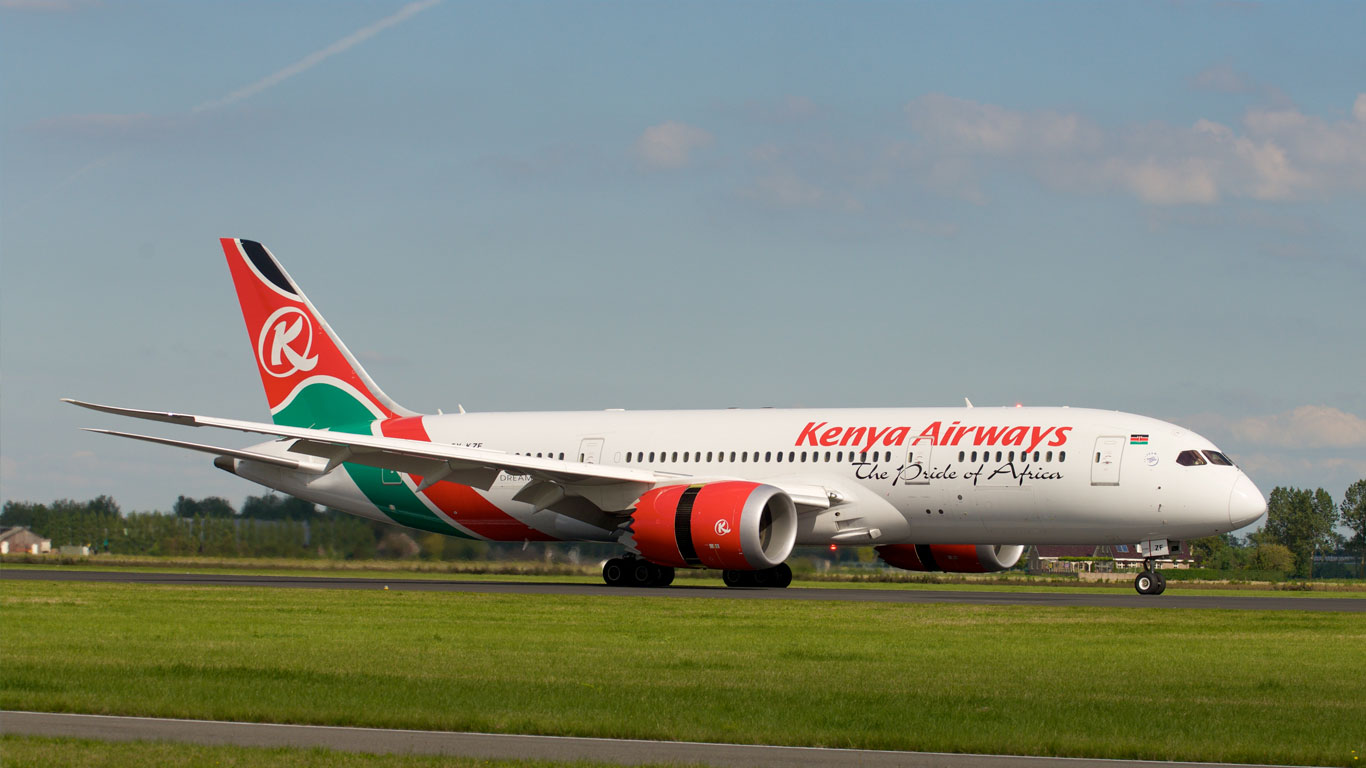
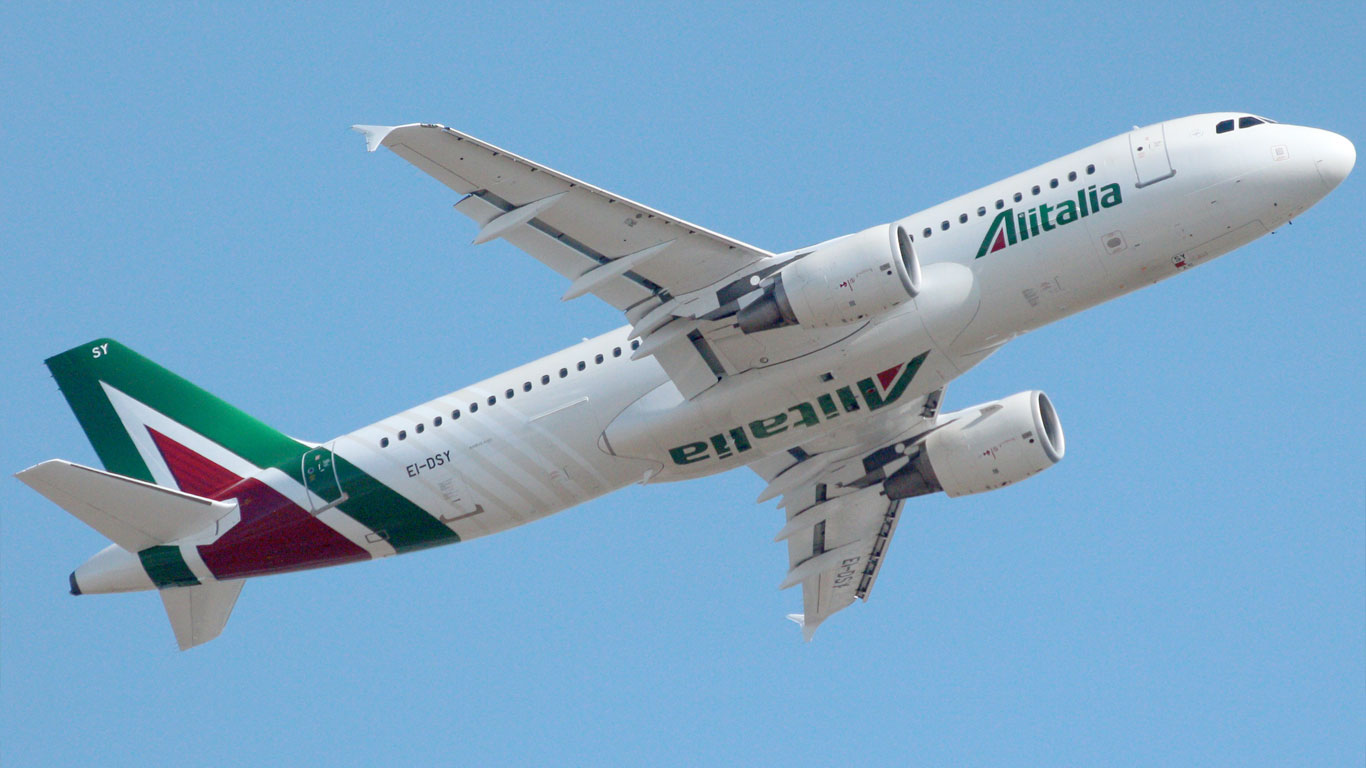
Alitalia and Kenya Airways have entered into a codeshare partnership to offer their customers more travel options at their hubs in Nairobi and Rome.
The deal which became effective early March, will see Alitalia's code placed on Kenya Airways' flight beyond Nairobi to Mombasa and Kisumu in Kenya, as well as to a further 19 African destinations including Abidjan, Accra, Addis Ababa, Antananarivo, Brazzaville, Dar es Salaam and Douala.
The move is aimed at enhancing connectivity by providing customers with a one-stop seamless travel experience from Rome.
"Similarly, Kenya Airways will expand its offer to Italy and Europe by placing its 'KQ' flight code on Alitalia's services from Rome to 16 Italian domestic destinations," said a statement from Kenya Airways on Monday.
Alitalia and Kenya Airways are both members of the SkyTeam alliance.
The new codeshare flights are available for sale through the airlines' reservation systems and in travel agencies from 14 March 2019, for travel from 12 June 2019 when Kenya Airways will inaugurate its four-weekly service between Jomo Kenyatta International Airport in Nairobi and Leonardo da Vinci International Airport in Fiumicino, Rome.
Alitalia flies to 77 destinations, including 22 Italian and 55 international destinations, with over 3600 weekly flights and 102 routes.
Source: All Africa
Convenient daily flights connecting the Masai Mara to Zanzibar or Diani with Safarilink
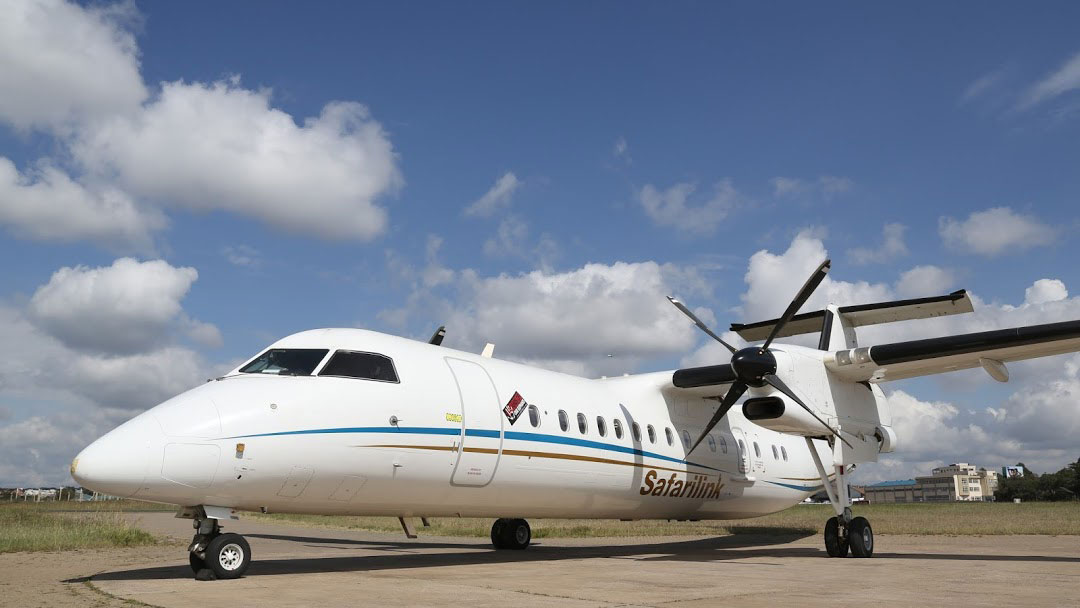
Planning an itinerary with multiple destinations can be tricky when considering the transport logistics of getting there. Safarilink has daily flights operating out of Wilson Airport to a number of destinations with seamless connecting service from Masai Mara to Zanzibar or to Diani.
Clients ending their safari in Laikipia or Masai Mara can connect via Wilson to Zanzibar or Diani, thereby arriving at a very convenient time to enjoy sundowners on the beach!
For those that are connecting to Zanzibar, upon arrival off their safari routes at Wilson, ground staff will meet and assist passengers to their dedicated departure lounge prior to clearing immigration and boarding. All flights to Zanzibar are operated in one of the Bombardier Dash-8 aircraft, with complimentary snacks and drinks served on board. Baggage allowance is 20 kgs inclusive of hand luggage.
| From | To | Departure | Arrival |
| Daily Flights to Masai Mara | |||
| Wilson | Masai Mara | 10:00 | 11:00 |
| Masai Mara | Wilson | 11:00 | 12:15 |
| Daily Flights to Diani Beach | |||
| Wilson | Diani | 14:00 | 15:20 |
| Daily Direct Flights to Zanzibar | |||
| Wilson | Zanzibar | 14:00 | 15:45 |
Elewana Collection has properties in each of these destinations;
Elewana Elephant Pepper Camp - Mara North Conservancy
Luxury bush camp with outstanding wildlife viewing in the heart of the Masai Mara. Elephant Pepper Camp is one of Kenya’s original, very small and exclusive tented camps, located away from other lodges in the pristine Mara North Conservancy, making it the perfect base from which to explore the wonders of the Mara.
Nestled in a lush thicket of Elephant Pepper trees overlooking open grasslands frequented by herds of game, Elewana Elephant Pepper Camp maintains a rustic luxury and authenticity of a traditional safari from yesteryear. Spacious canvas tents are elegantly furnished with Raj campaign furniture, and enjoy comfortable en suite bathrooms.
Nothing rivals sitting around the campfire listening to the sounds of the African night. Enjoying extended game drives with our highly knowledgeable and qualified guides, guests participate in the most unique wildlife experience in the world. Elewana Elephant Pepper Camp brings people to the heart of the wilderness with just the sights and sounds of the African bush.
Elewana Sand River Masai Mara - Masai Mara National Reserve
Luxury tented camp lying on the northerly route of the spectacular annual migration. Guests can sink back in time and savour the same glamorous ambience, unspoilt scenery and spectacular game viewing as the Hollywood stars, royalty and celebrities of that classic era of African adventure.
Elewana Sand River Masai Mara comprises of 16-tented accommodations - including 1 family tent - each divided into two separate but adjoining campsites, with each area possessing its own designated dining and public areas, thereby creating an increased sense of exclusivity and privacy.
Sand River Masai Mara is an ideal destination, at any time of the year, for those wishing to enjoy exceptional game-viewing. The National Reserve is best known for its large concentrations of big cats, such as leopard, cheetah and, of course, lion. The Masai Mara ecosystem holds one of the highest lion densities in the world and this is where over two million wildebeest, zebra and Thompson gazelle migrate annually. It hosts over 95 species of mammals and 570 recorded species of birds.
Elewana Afrochic - Diani Beach
Diani Beach is a magical location of white sands, rustling palm trees, and warm Indian Ocean waters. Elewana AfroChic enjoys beach front ocean views and delicious sea breezes on a quieter, more secluded section of Diani Beach. Each en suite room is uniquely designed with coastal furniture and fabrics, and amenities to take care of your every need. The crystal clear fresh water pool laps up against the terrace where guests have the option of dining or relaxing with the view of the ocean across the pool and shaded garden. The hotel has earned itself a reputation for a “home away from home” atmosphere, excellent seafood and friendly service.
Voted as one of the top 25 beaches in the world in the Trip Advisor Traveller’s Choice awards, Diani Beach is the ultimate holiday destination with a wide variety of activities and excursions on offer. A plethora of water sports from scuba to snorkelling; deep-sea fishing to sailing; day trips to Shimba Hills National Reserve and Mombasa City, are just a few of the many activities available. And of course there is always the favourite coastal pastime of relaxing and soaking up the sun. With such a variety of options, visitors to Diani have the ability to make their holiday what they want.
Elewana Kilindi Zanzibar - Nungwi
Elewana Kilindi Zanzibar is the ultimate romantic destination, the perfect place to enjoy the harmony of the ocean and spend time with the one you love. Set in a picturesque tropical garden with its secluded beachfront, the luxurious Pavilion suites embrace wide-arched glassless windows affording spectacular views over the Indian Ocean.
Each villa has its own private plunge pool and is tended to by its own Guest Ambassador. Kilindi's 'open-to-nature' approach provides the true essence to any stay and crafts a private, intimate and 'barefoot' appeal that so many crave. Explore the hidden secrets of the island or relax in the infinity pool watching the dhows head out to sea, with a gentle breeze in their sail.
There is a delightful spa offering an extensive array of treatments to satisfy you from head to toe, the spa combines African natural ingredients with both modern and traditional methods in the art of beauty, offering the ultimate in pampering.
Guests can enjoy day boat trips, scuba and snorkelling to get a glimpse of the dolphins, copious fish and vivid corals that thrive in Zanzibar’s waters. Stone Town is a UNESCO world heritage site, and a place where history still lives. The stone buildings, meandering alleyways, and markets still existing as they have done for centuries make for a fascinating day of exploring.
Media
PR Highlights
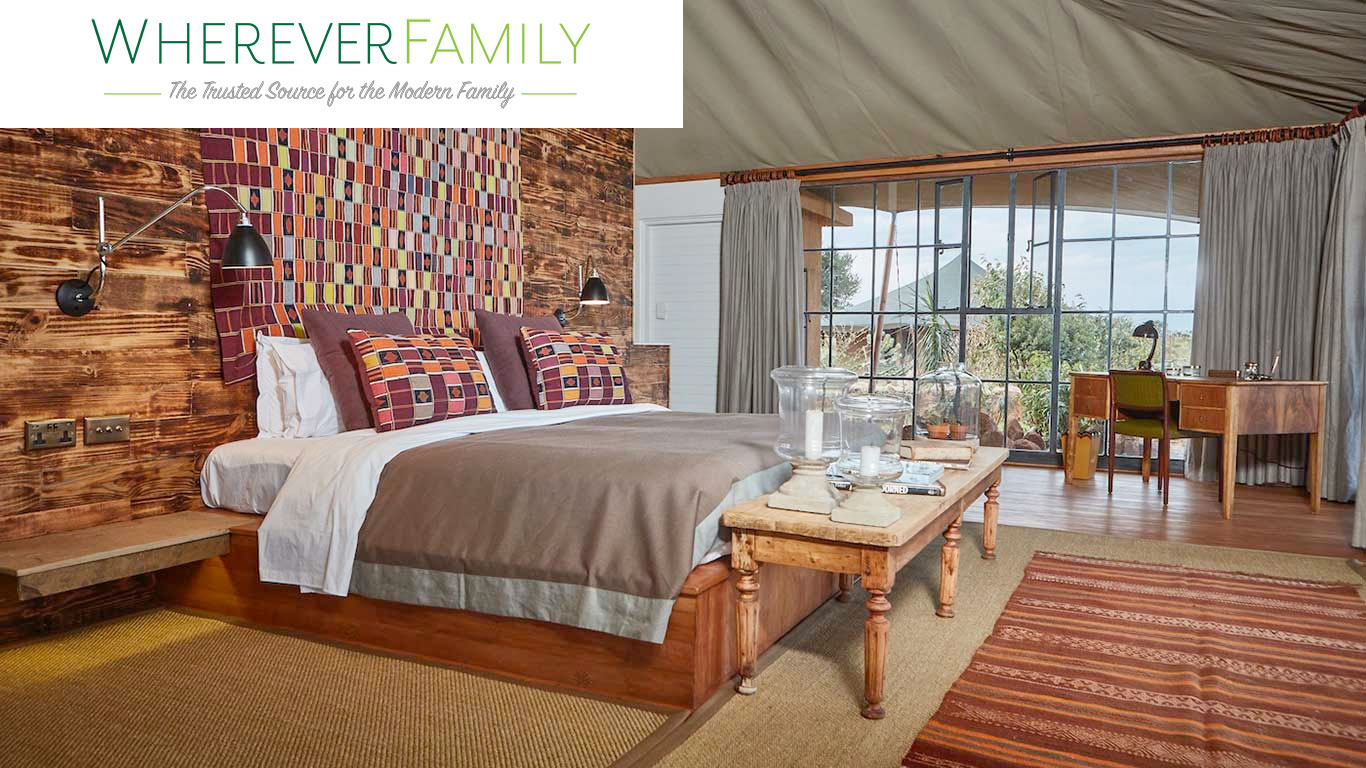
Global Traveler's new family-focused blog site, Wherever Family
Africa Travel With a Luxe Touch (by Felicity Long)Following the Herds
New technologies could help conservationists keep better track of Serengeti Wildebeest herds
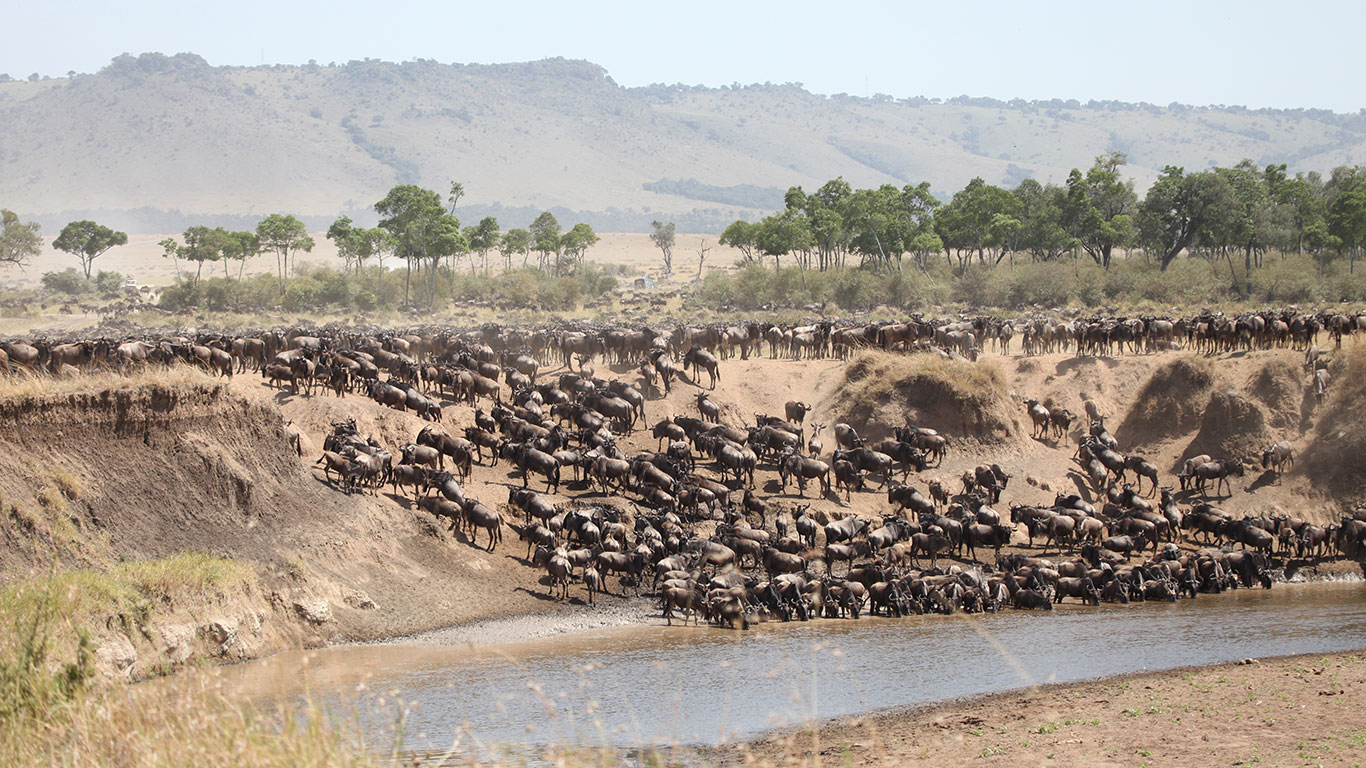
In a new paper published recently in the journal Methods in Ecology and Evolution, mathematicians and conservationists from the UK, Africa and the United States discuss how they have used both machine-learning and citizen science techniques to accurately count wildebeest in the Serengeti National Park in Tanzania more rapidly than is possible using traditional methods.
Evaluating wildebeest abundance is currently extremely costly and time-intensive, requiring manual counts of animals in thousands of aerial photographs of their habitats. From those counts, which can take months to complete, wildlife researchers use statistical estimates to determine the size of the population. Detecting changes in the population helps wildlife managers make more informed decisions about how best to keep herds healthy and sustainable.
They used a deep-learning algorithm to identify the wildebeest in images taken from the 2015 aerial survey of the Serengeti National Park. The system was 'trained' to recognise wildebeest using 500 high-resolution aerial images from the Serengeti, then fine-tuned for further accuracy, eventually being capable of processing 1,000 images in less than two hours and able to produce a total count of over 20,000 wildebeest within 1% of a count conducted by a human expert.
The team's second approach used the 'citizen science' website Zooniverse to publish a selection of the same images, with each large-resolution image split into 12 equal-sized tiles to make counting easier. Over three weeks in May 2017, more than 2,200 Zooniverse users looked at close to 10,000 of those images, offering their counts of the wildebeest in each image. To ensure an accurate count, every image was counted by 15 different volunteers.
Dr Colin Torney, senior lecturer in the University of Glasgow's School of Mathematics and Statistics, is one of the paper's lead authors. He said: "Wildlife managers need regular and accurate counts of animal populations to help them identify any changes and evaluate what's causing them. Without a good handle on population abundance, it's much harder for them to see the early warning signs of a decline caused by changing habitats or increased levels of poaching and start to take the proper steps to redress the imbalance.
"Our approach gave us really good results, which I think shows the unique benefits of this type of cross-disciplinary collaboration. Our research suggests deep learning algorithms could support traditional hand-counting methods or, potentially, even replace them entirely as the primary means of processing the aerial photographs."
Dr Edward Kohi, a co-author of the paper and Principal Research Officer at the Tanzania Wildlife Research Institute, said: "These emerging technologies will enable TAWIRI to have an annual wildebeest survey as the time consuming manual work will be taken care of. The success of the machine learning approach represents a major milestone for wildlife survey techniques in Tanzania and across Africa. TAWIRI and our partners take this improvement very seriously and we are planning to apply this advancement to other wildlife species."
Dr Grant Hopcraft of the University's Institute of Biodiversity Animal Health & Comparative Medicine, is the senior author on the paper. He added: "The major driving force in the Serengeti's ecosystem is the abundance of wildebeest. Currently, there are about 1.3m wildebeest, which influence almost every variable in the ecosystem - everything from the return rate of fires, since they eat the grass, to the amount of insects that are available to migrating birds. Without wildebeest, the ecosystem would shift into a completely different state and therefore it's important to know how many there are.
"About 8.5 percent of that population is lost each year through illegal bushmeat trade, predation and natural causes. The fastest the population can grow through calving is about 10 percent each year, so the margin for maintaining the population is pretty slim.
"The work we've done with deep learning and citizen science is really encouraging, and we're keen to expand it further in the near future, perhaps for population surveys using satellite imagery. It's an exciting time for the field, and demonstrates the potential benefits that can be achieved from mathematicians and ecologists working more closely together."
Source: All Africa
Elewana Collection has two properties in the Serenegti, which are perfectly located to witness the annual wildebeest migration as they travel through during specific months. Each property offers a unique experience with prime wildlife viewing year round.
Elewana Serengeti Pioneer Camp - South Central Serengeti National Park
Elewana Serengeti Pioneer Camp is perched on a rocky outcrop in southern central Serengeti and affords dramatic views of the Serengeti plains that drift endlessly into the horizon.
A camp designed for limited impact on its natural surroundings and has the feel of a 1930s mobile safari camp, but with all the modern day amenities of a luxury camp. The tents are tastefully decorated in Campaign-style safari furniture, with en suite bathrooms offering steaming hot solar-heated showers. Each tent has a personal room attendant to look after guests’ needs. Ensconced among the natural bush, the tented suites offer a truly back-to-nature feel.
Elewana Serengeti Migration Camp - Northern Serengeti National Park
Lining the banks of the famous Grumeti river, Elewana Serengeti Migration Camp perfectly encapsulates the luxury camp experience. Overlooking a kopje and the sweeping plains across the river, the camp’s main areas include open-plan lounge, dining room with large balcony, or sunset viewing platform with camp fire each designed for guests to enjoy the expansive view. A large swimming pool invites guests for a refreshing swim during the heat of the day. The luxurious and elevated en suite tents are incredibly spacious and tastefully decorated in rich dark wood and leather furnishings. The perfect embodiment of a luxury bush safari experience.


